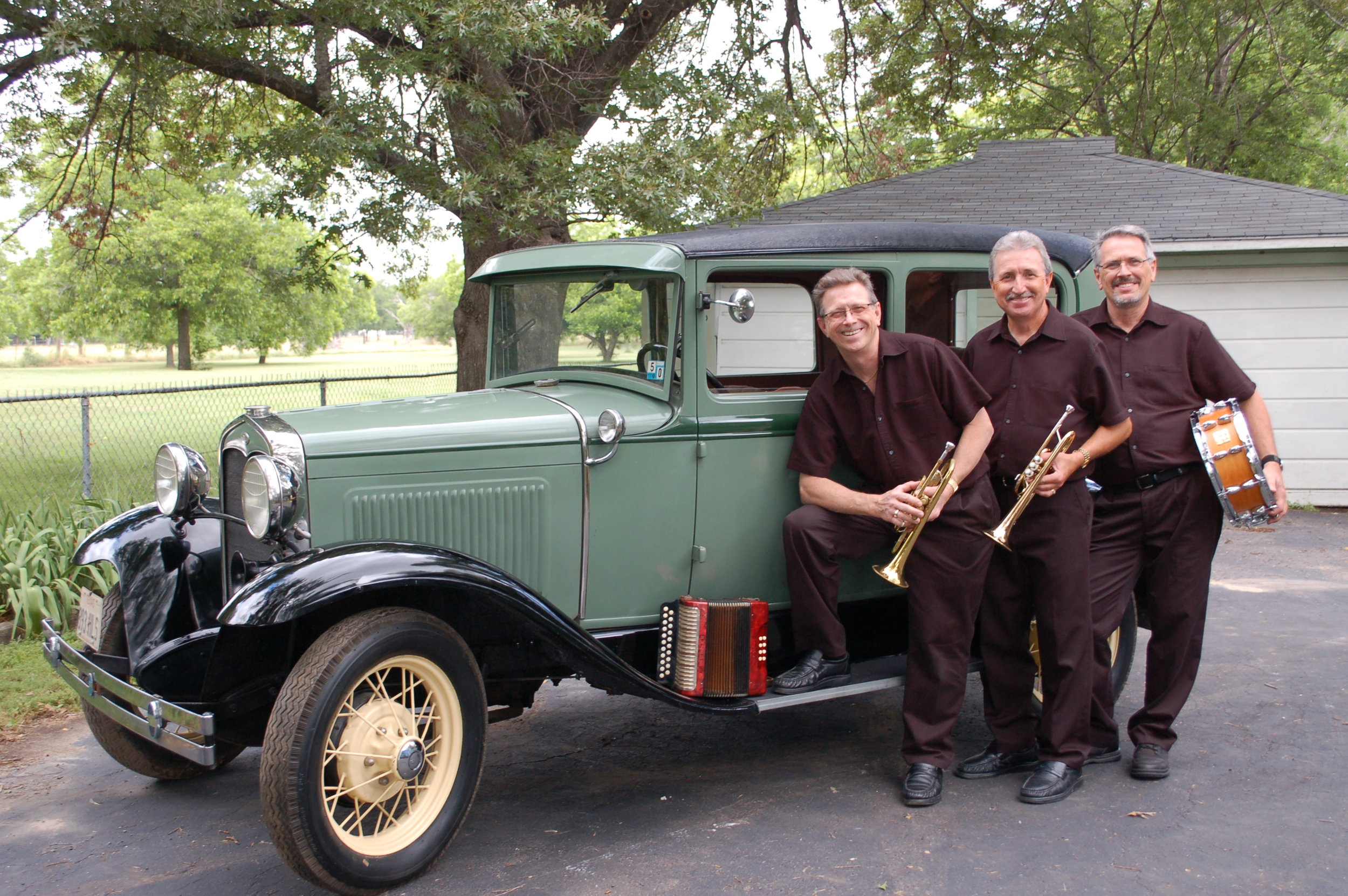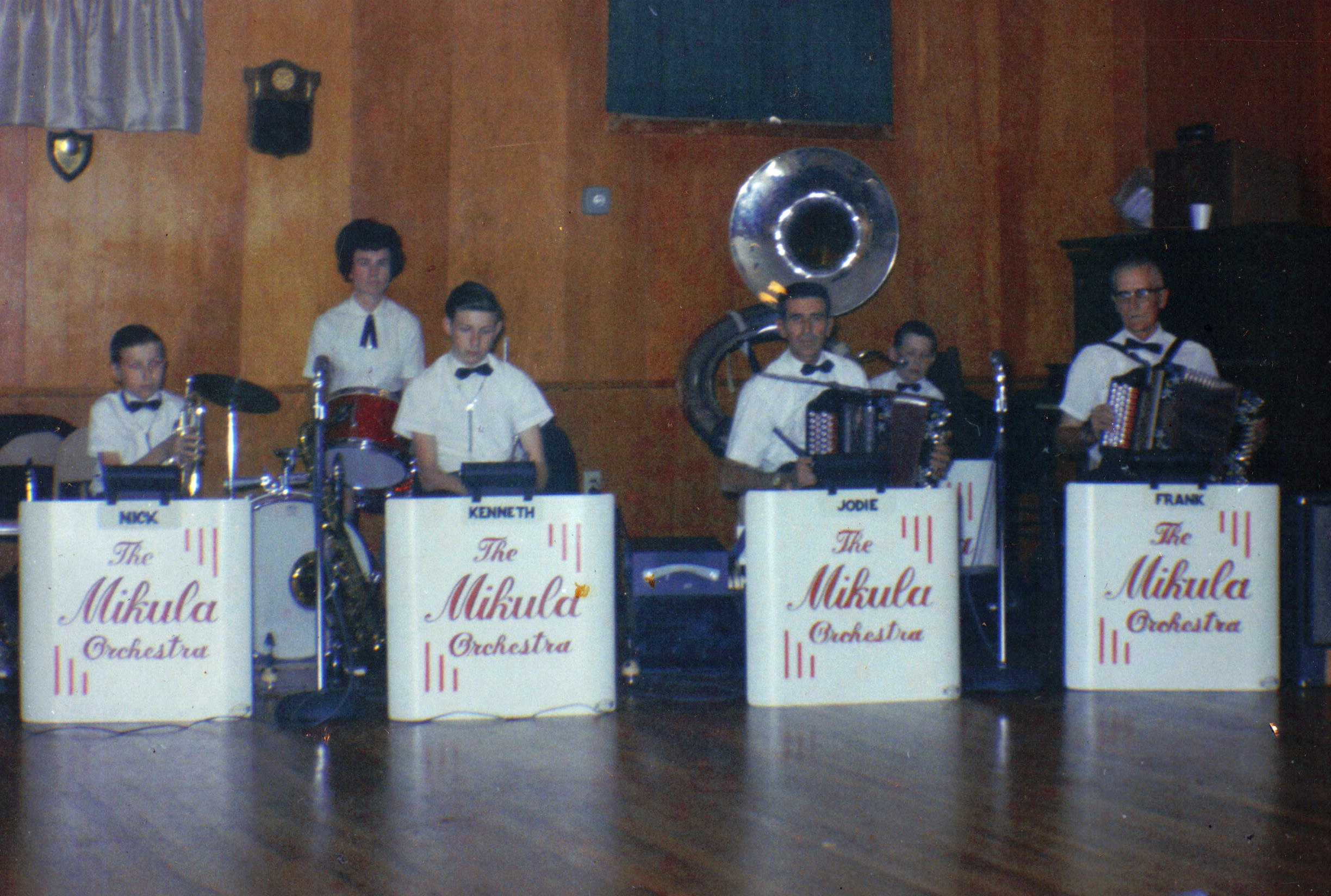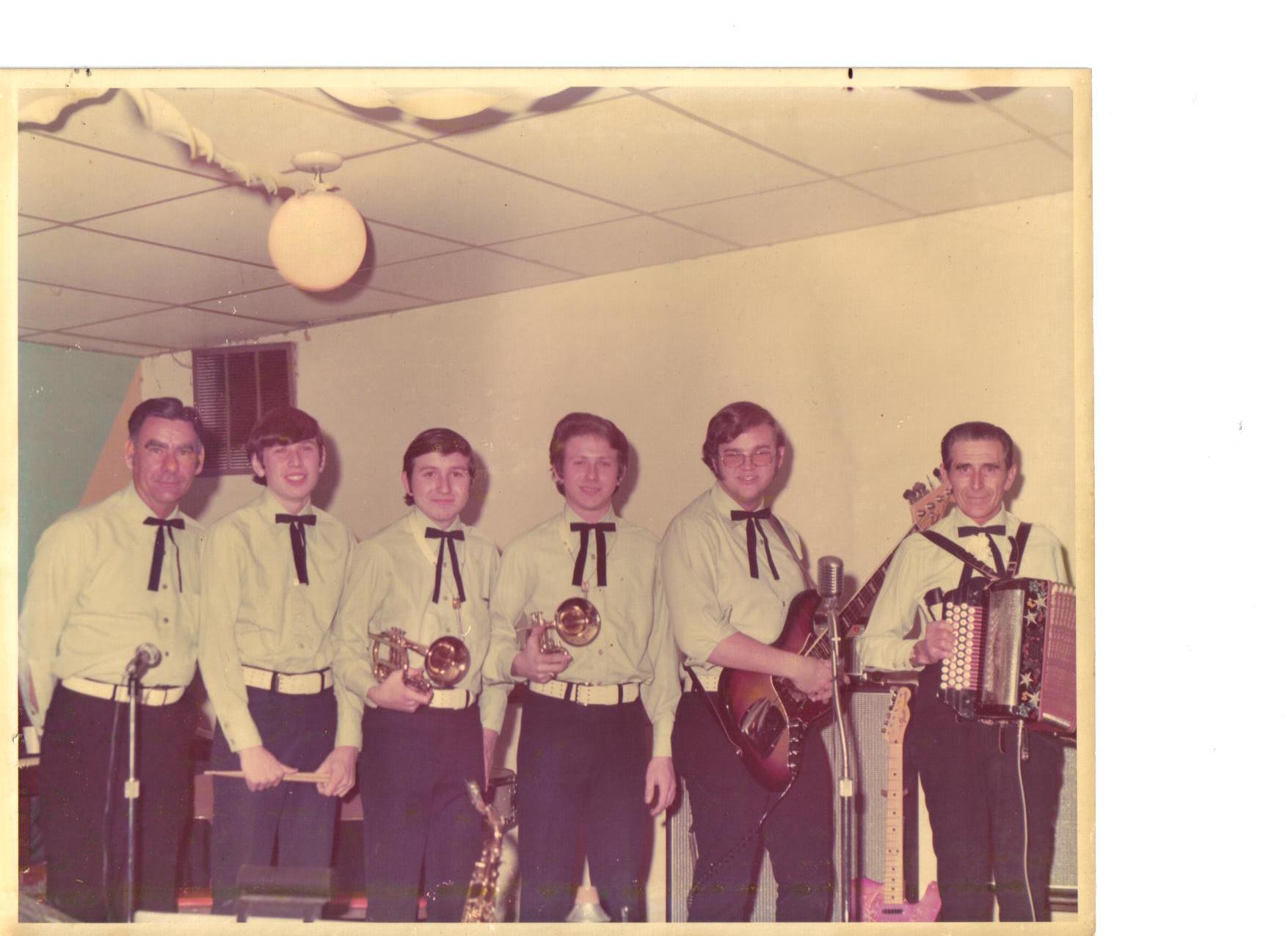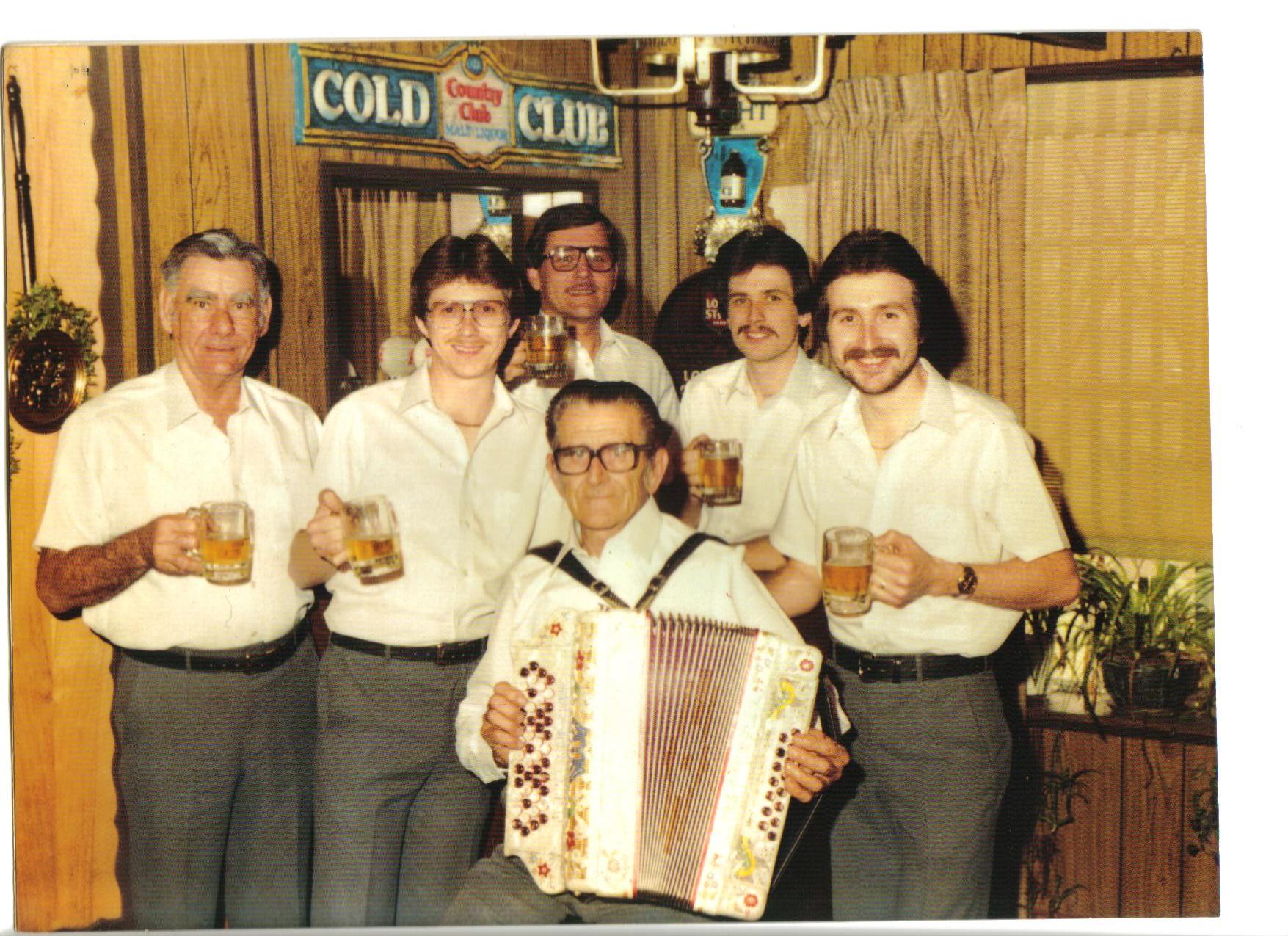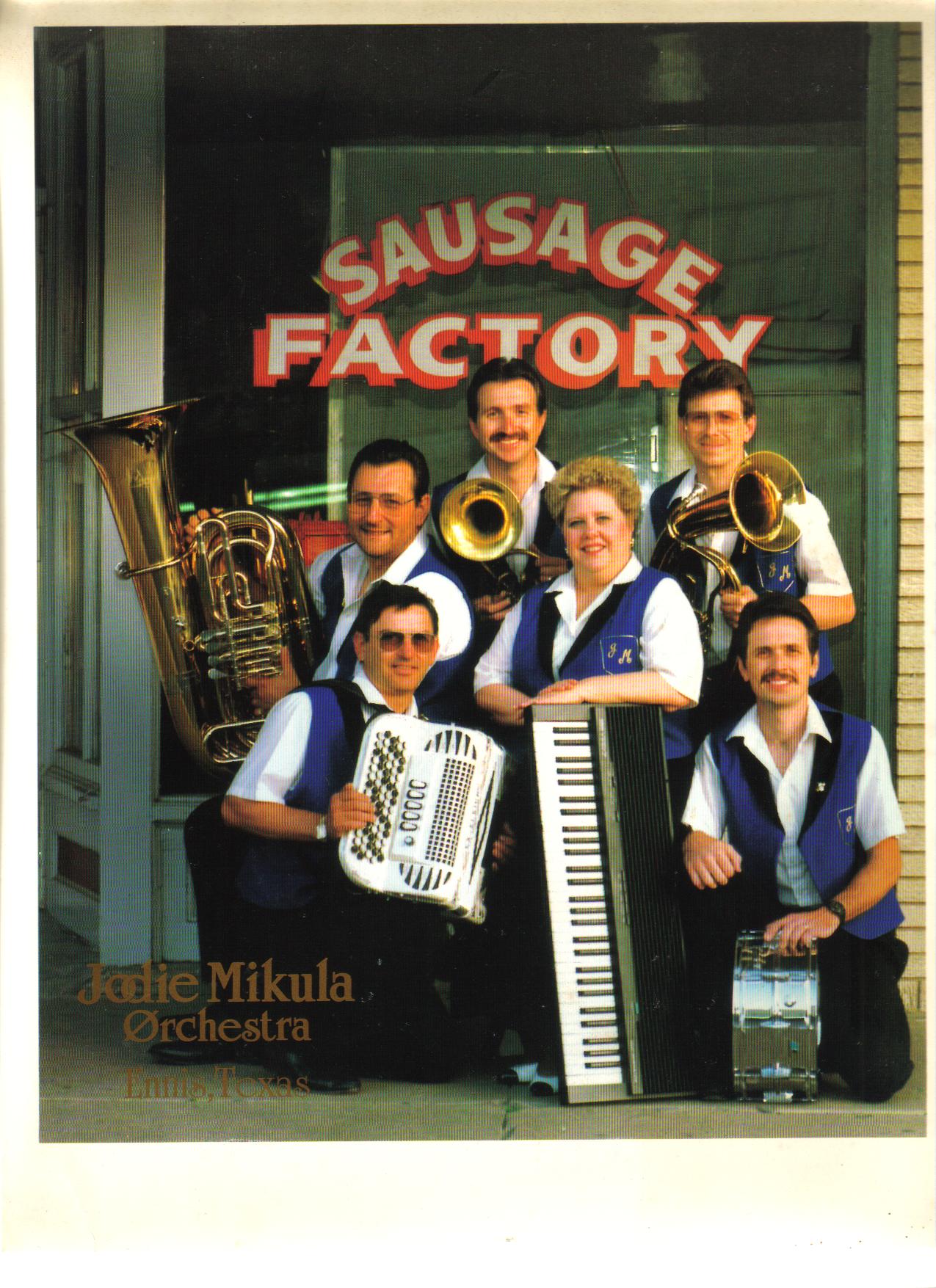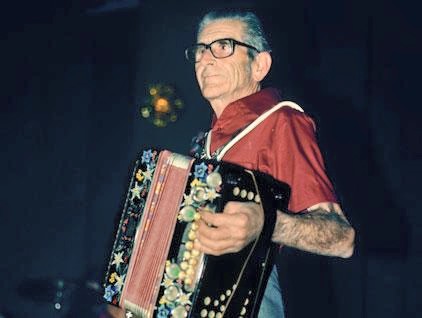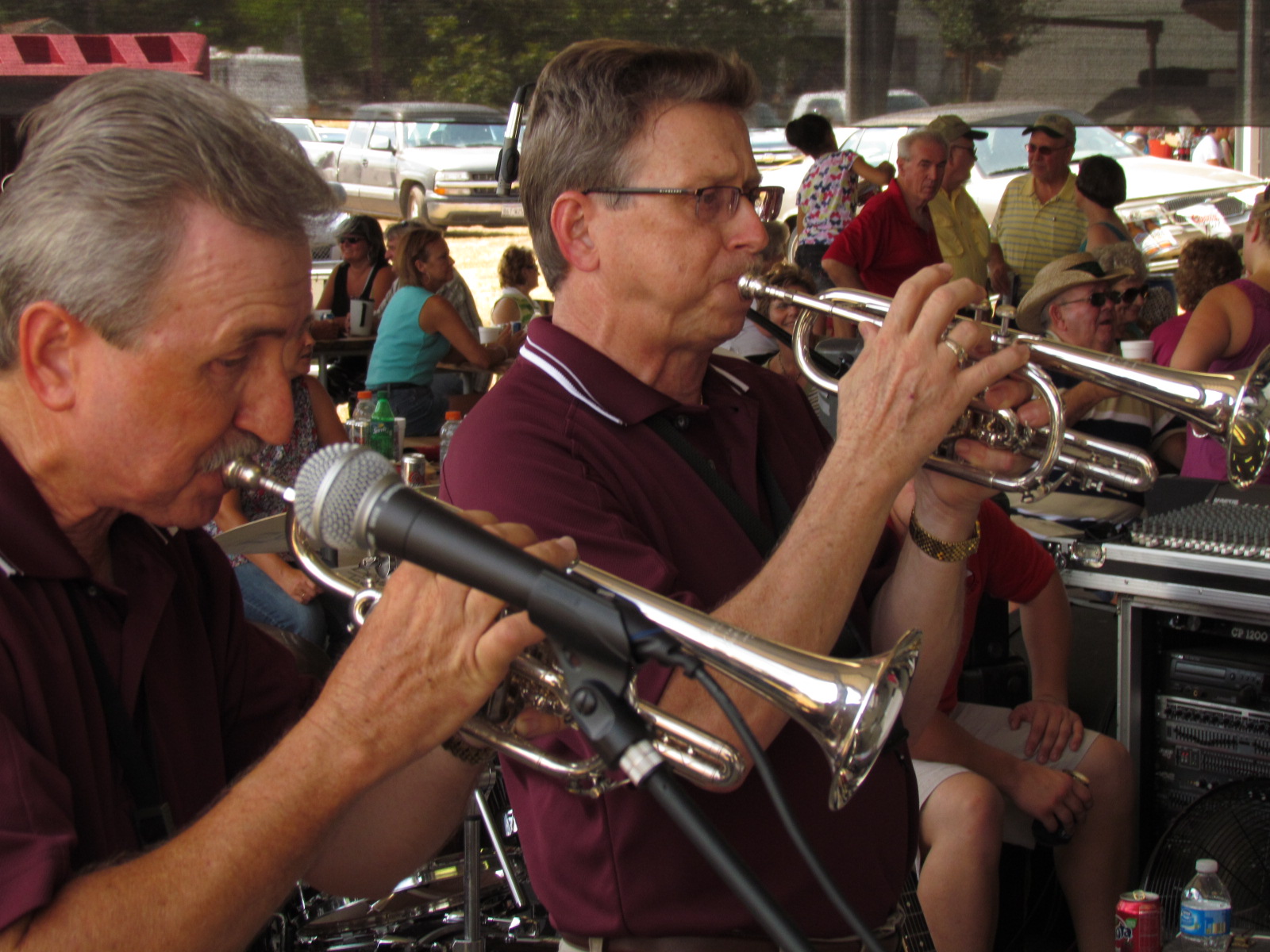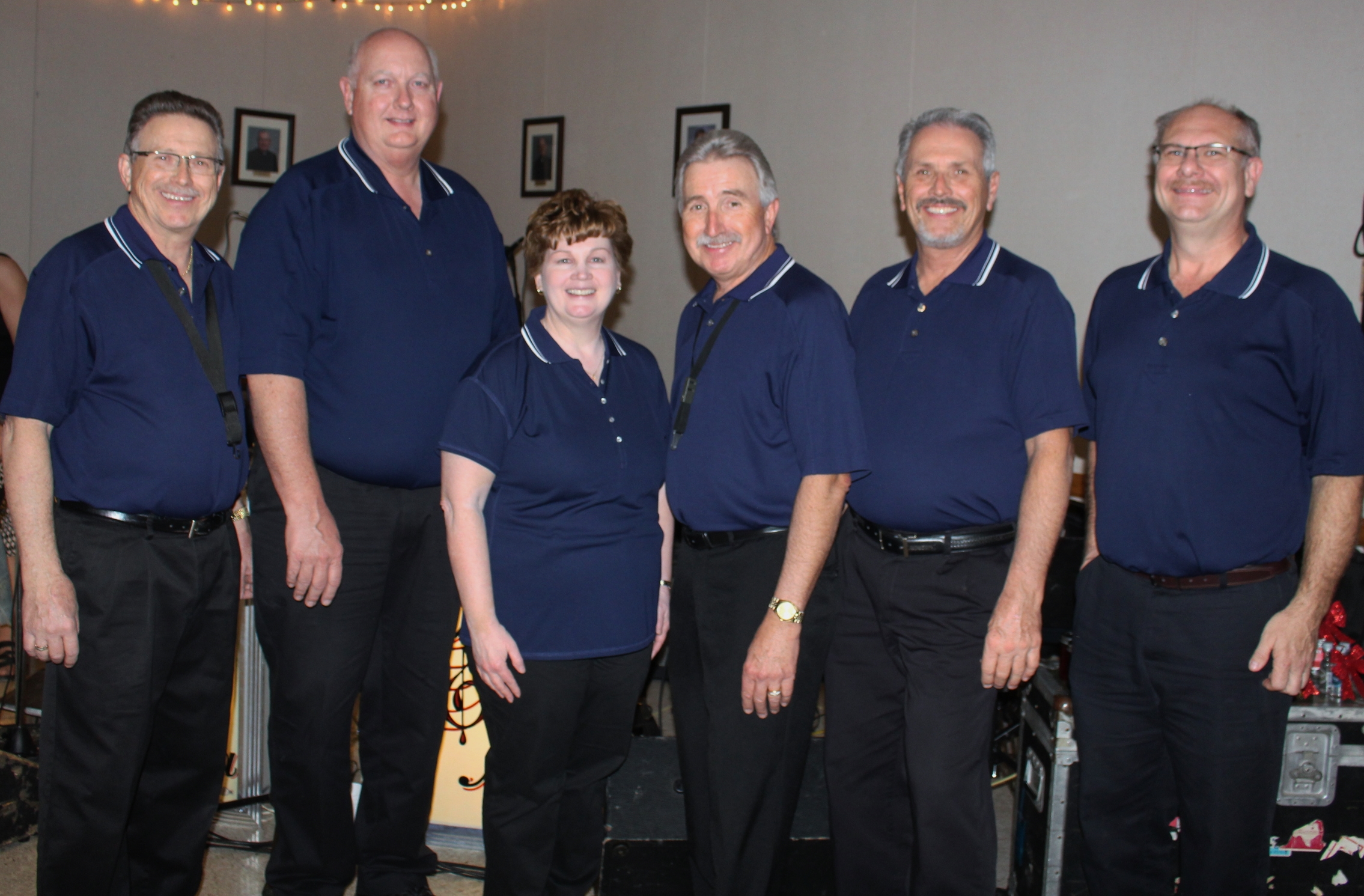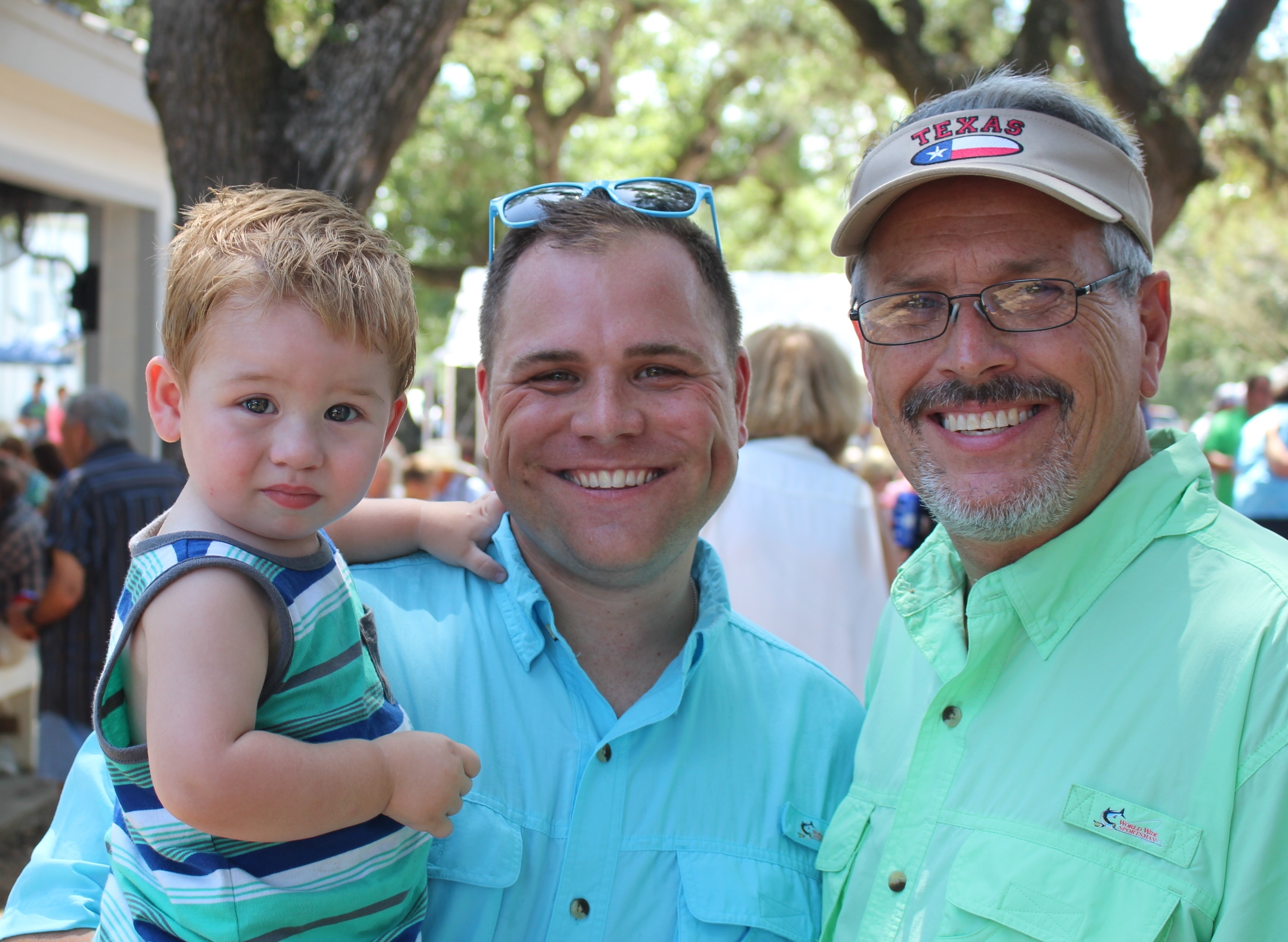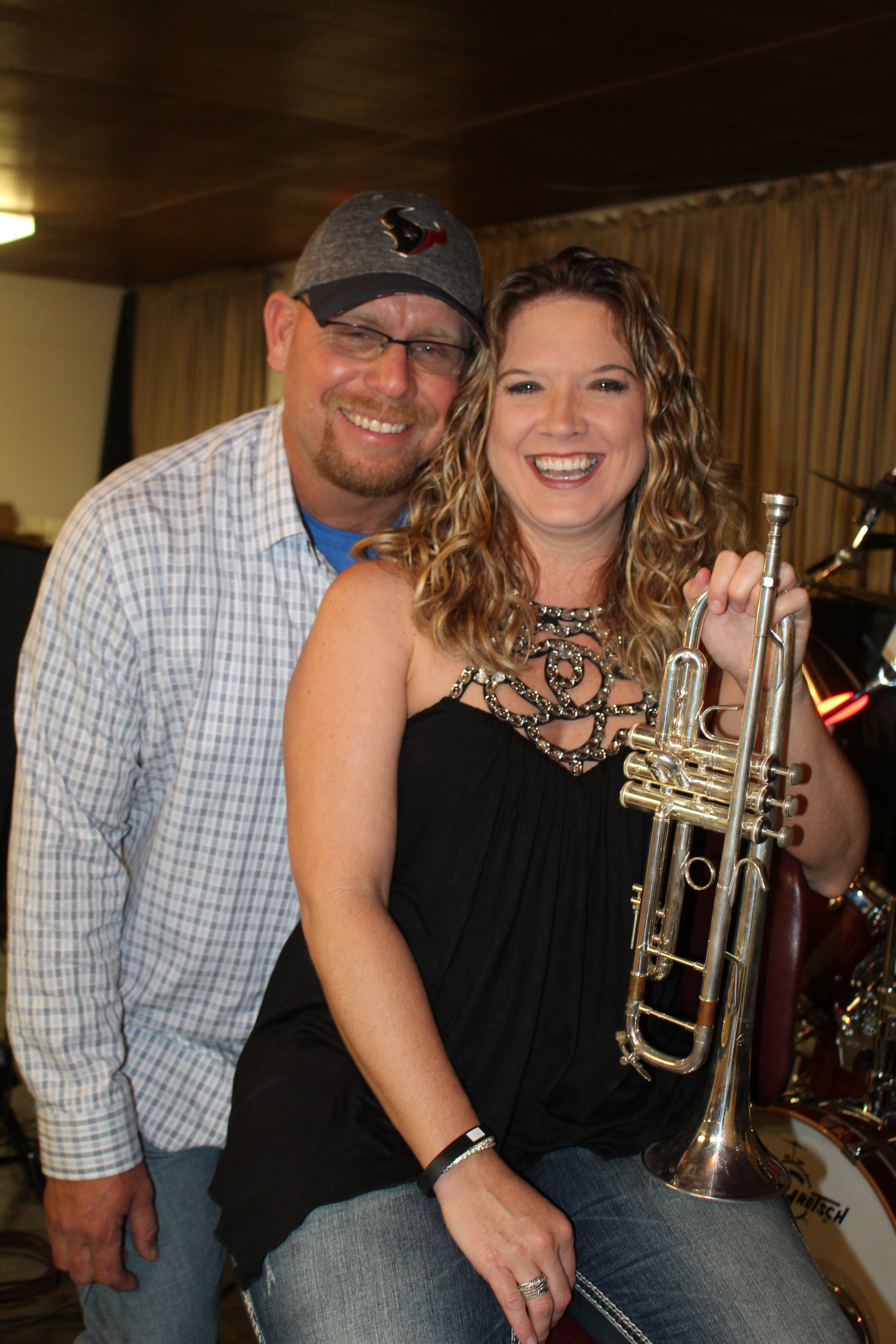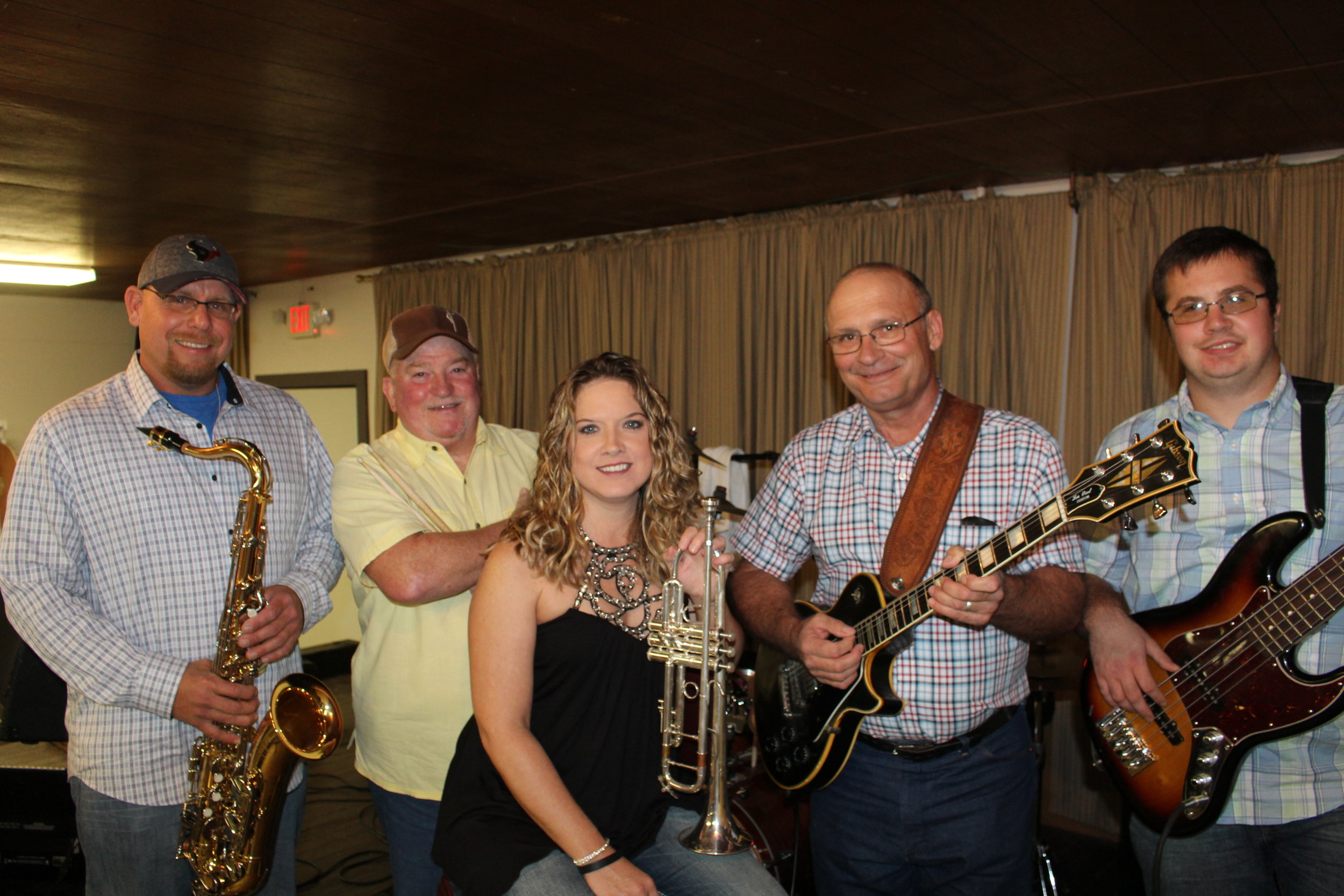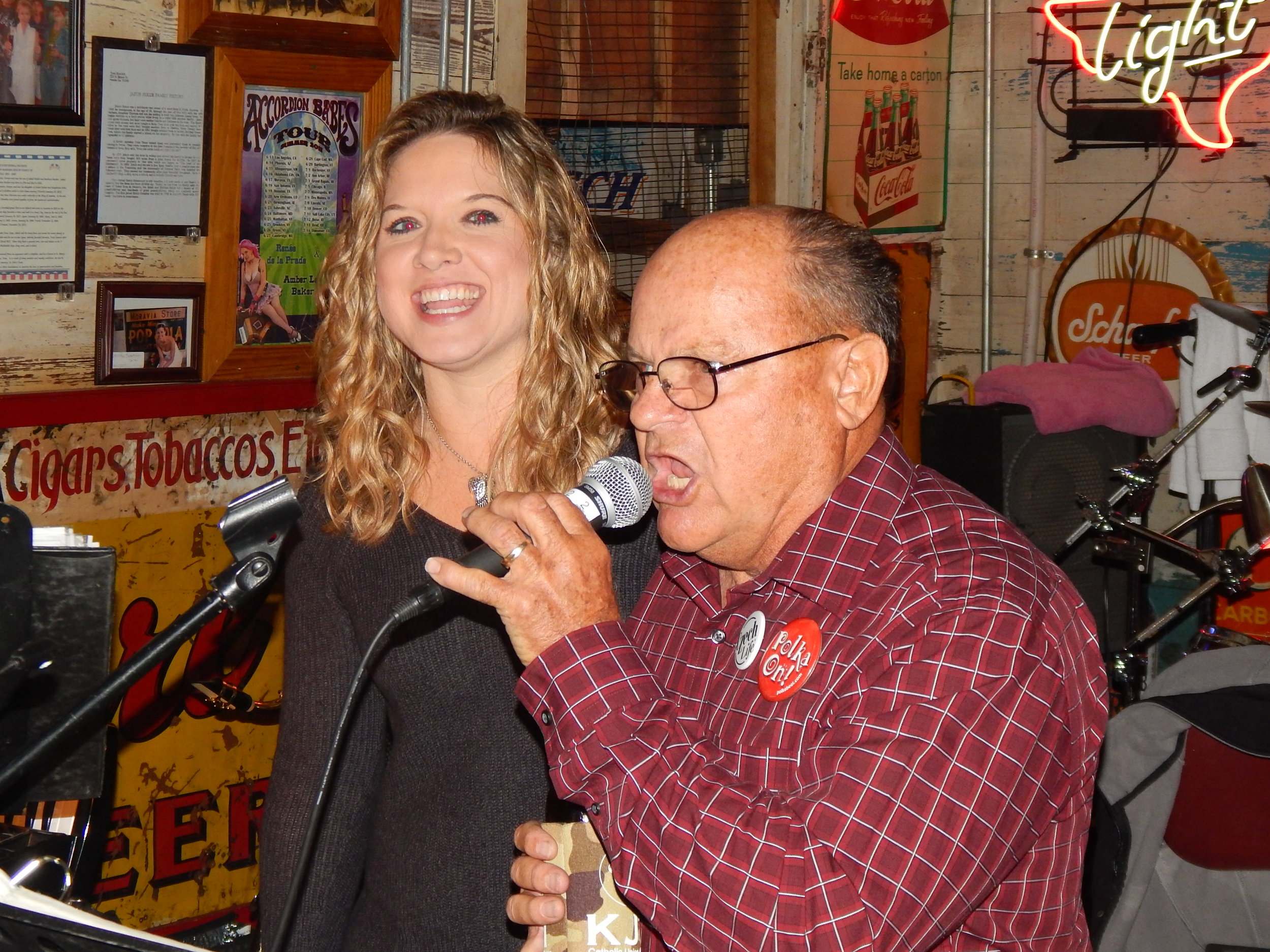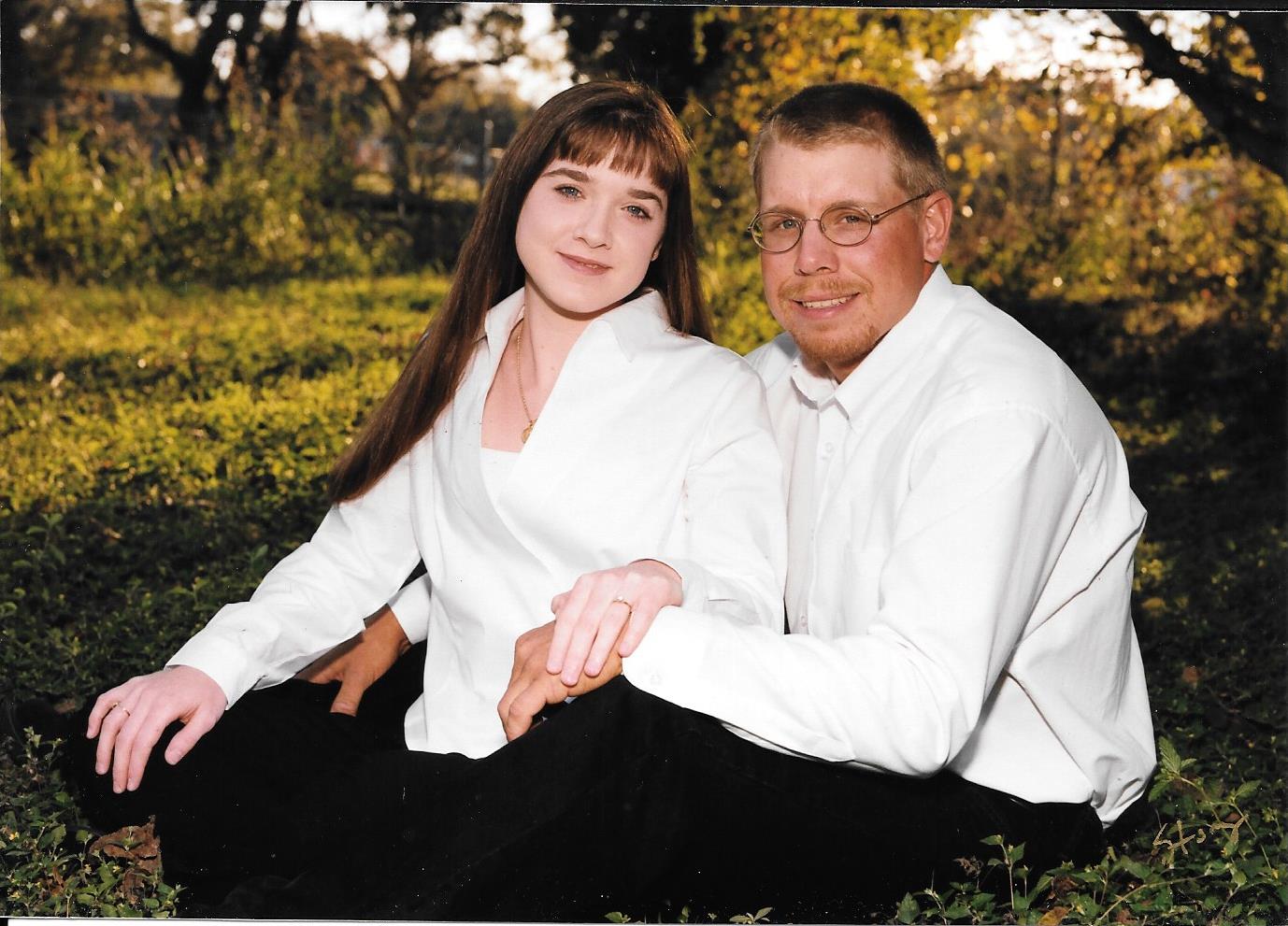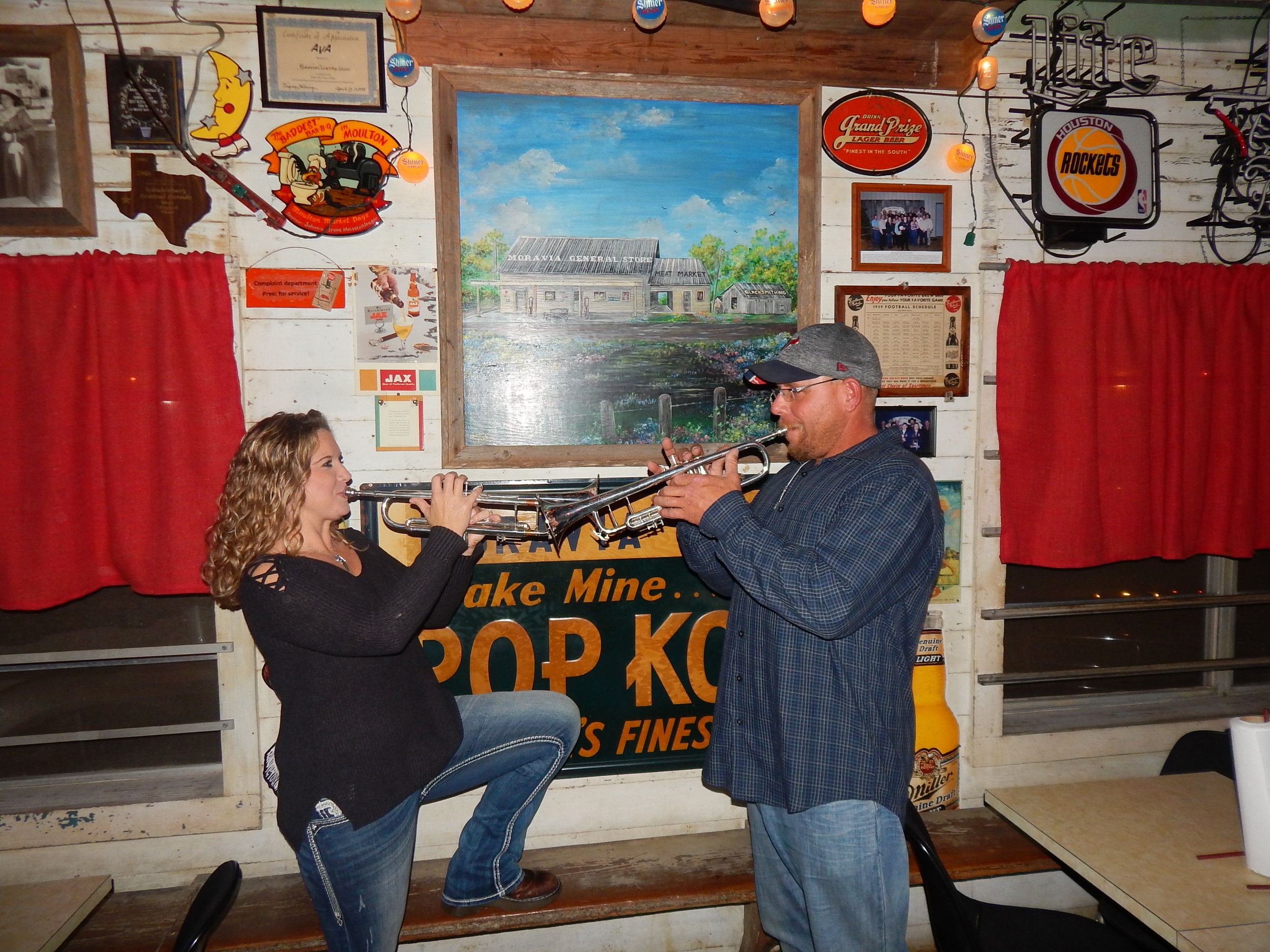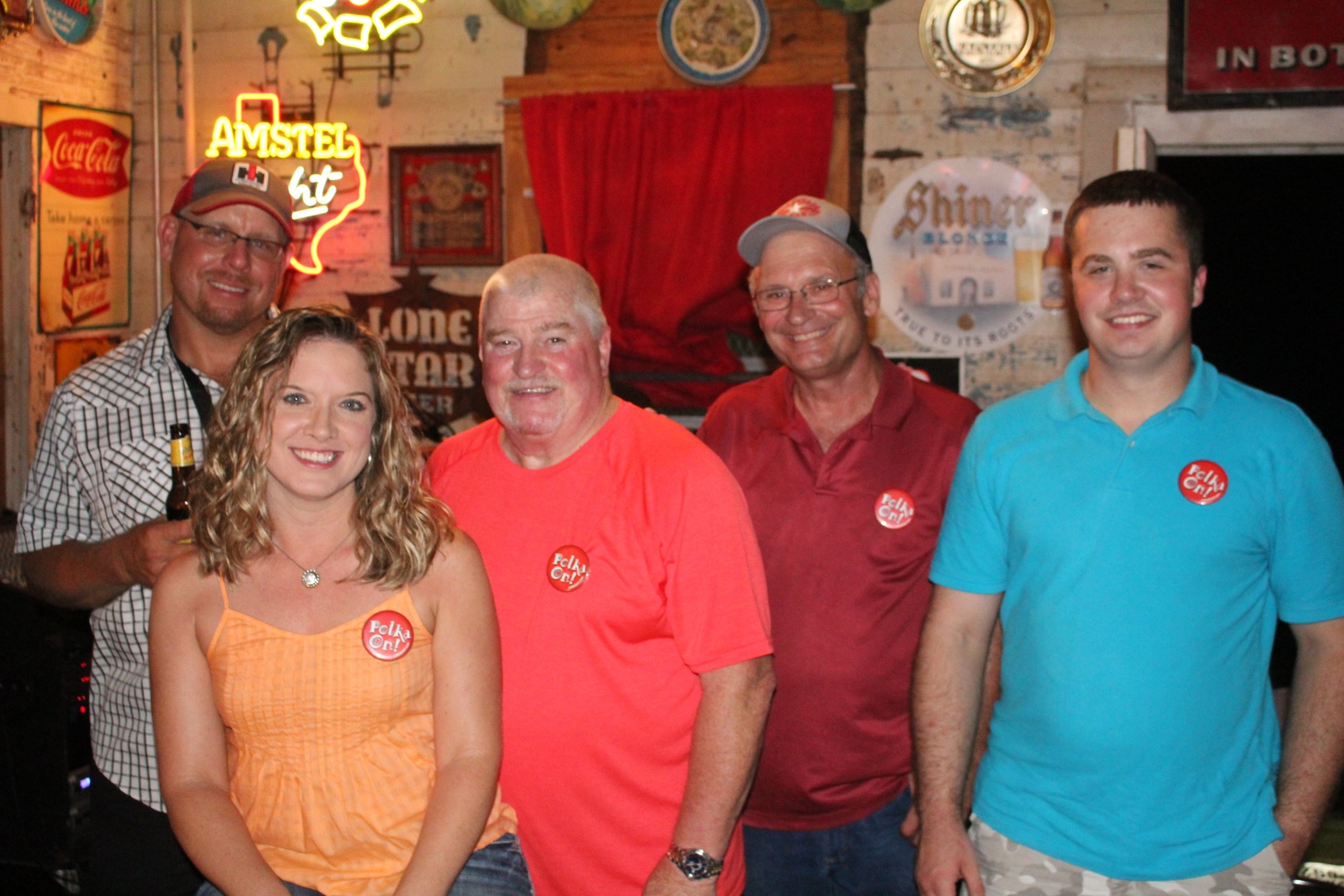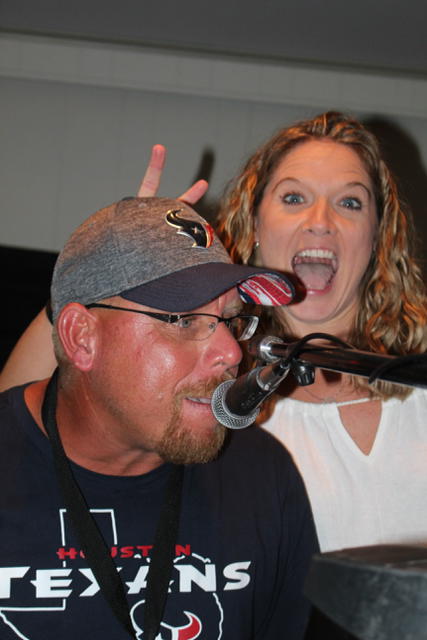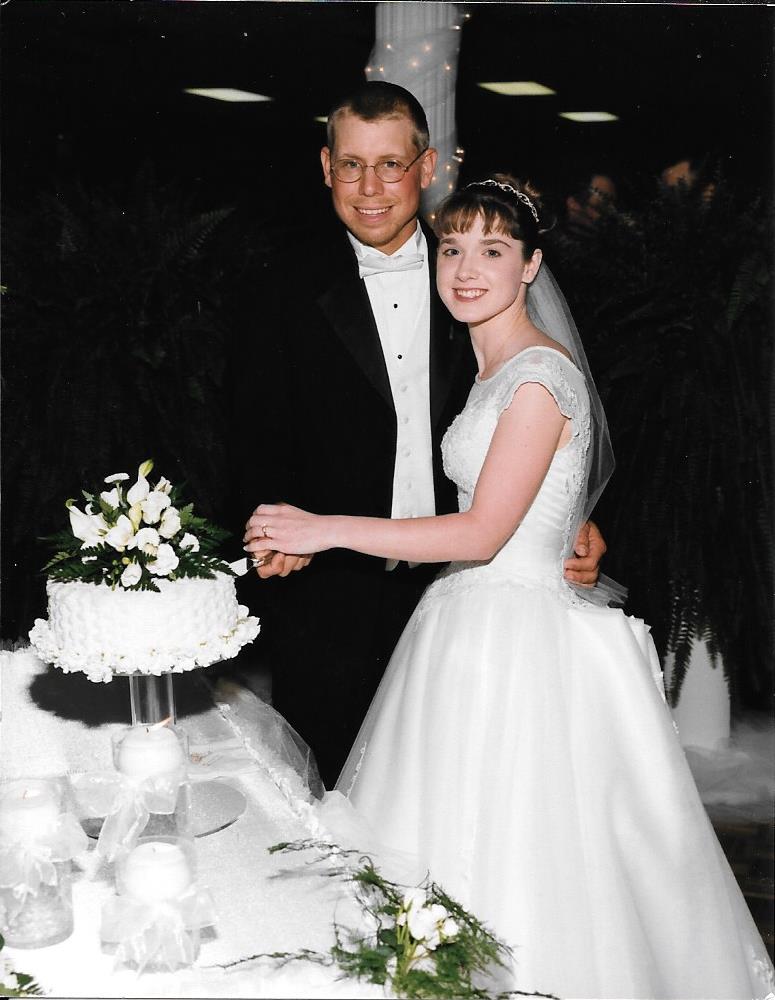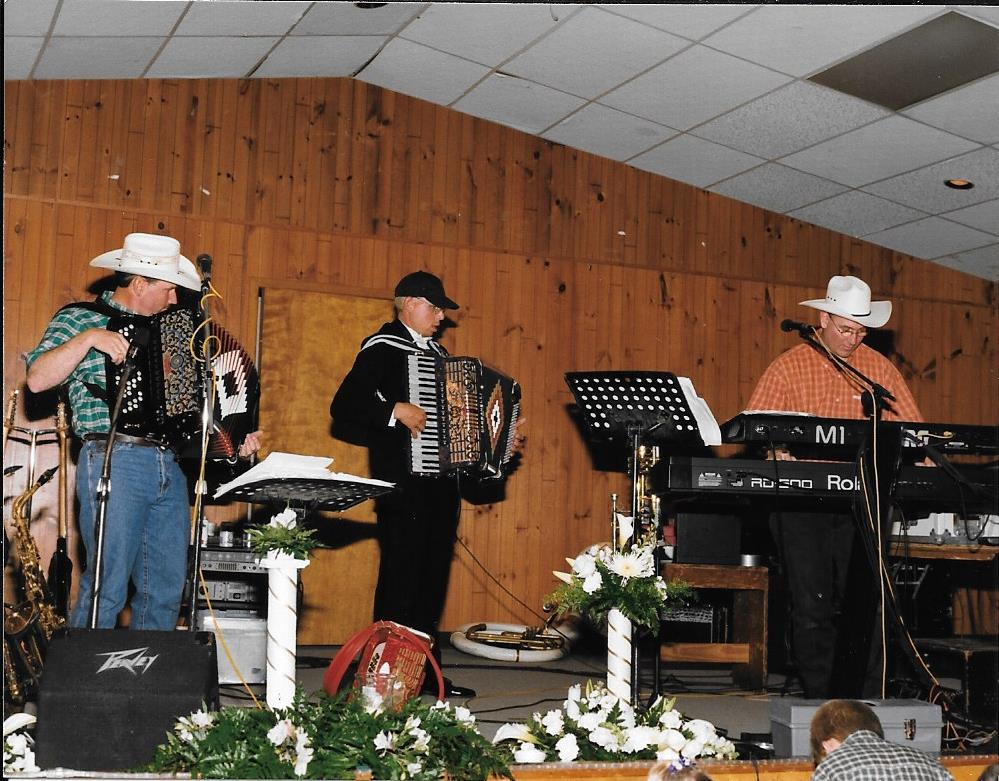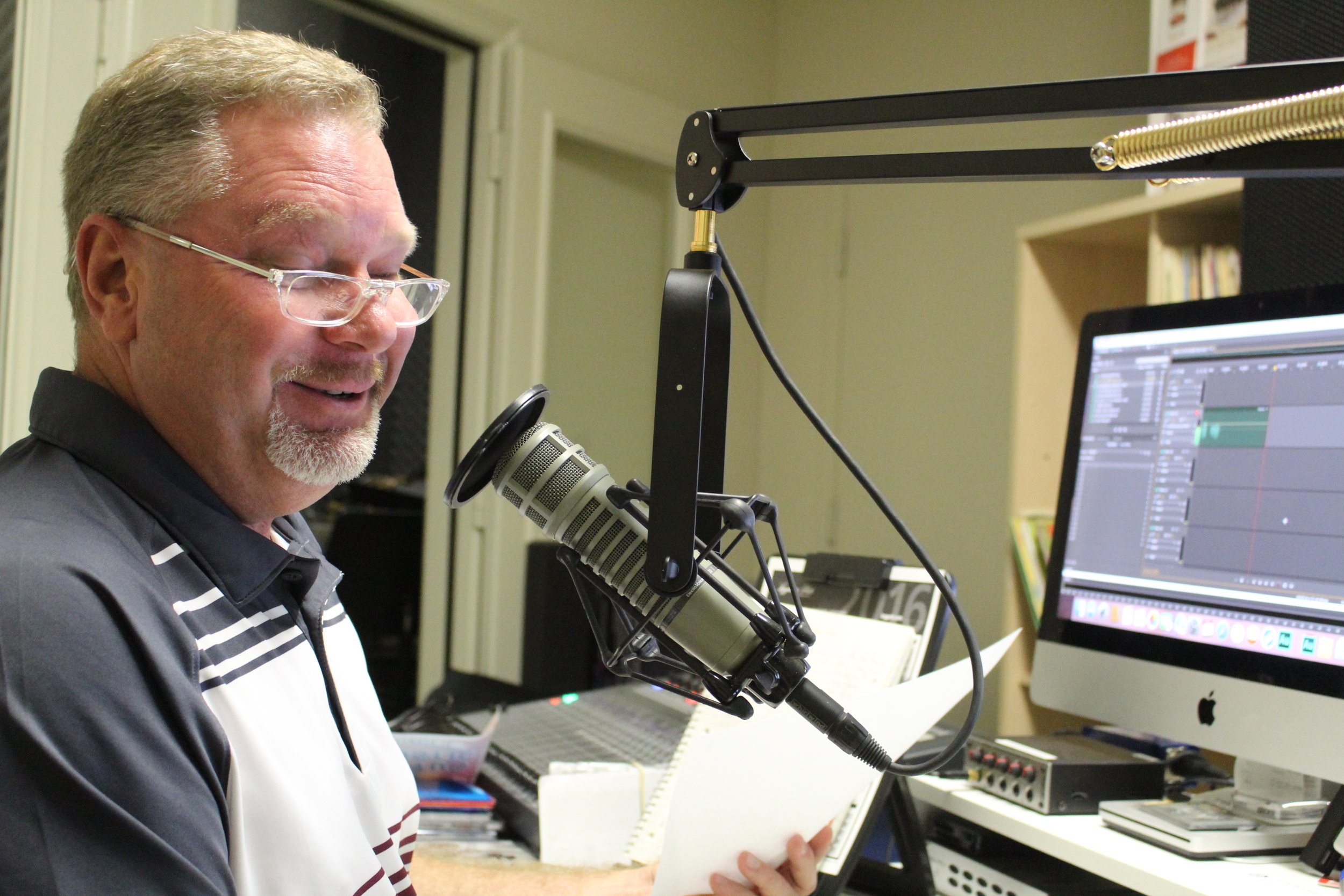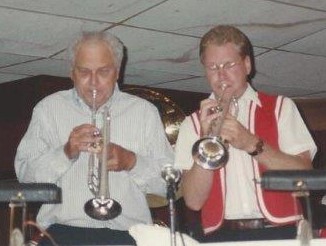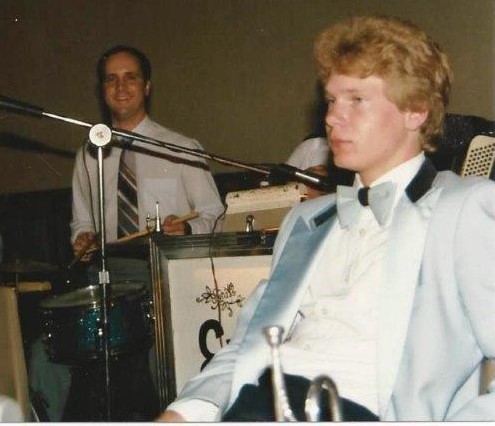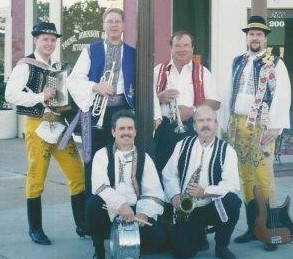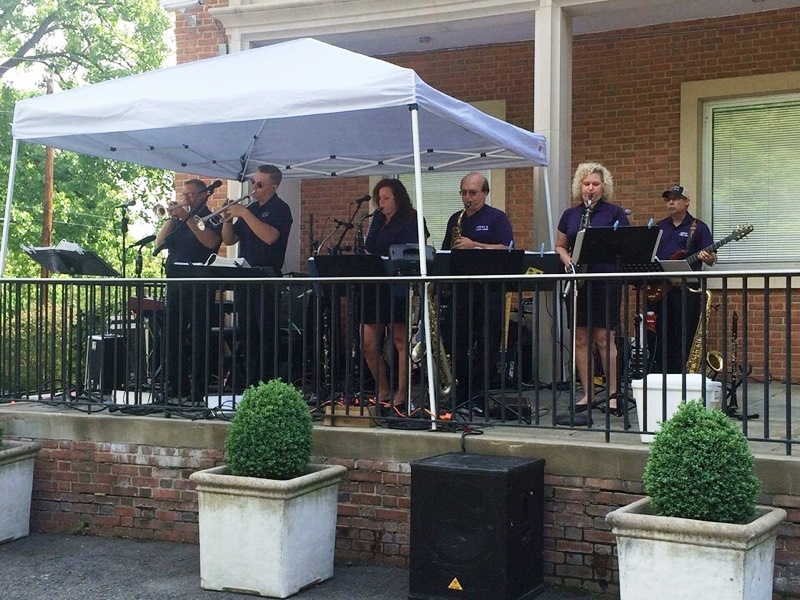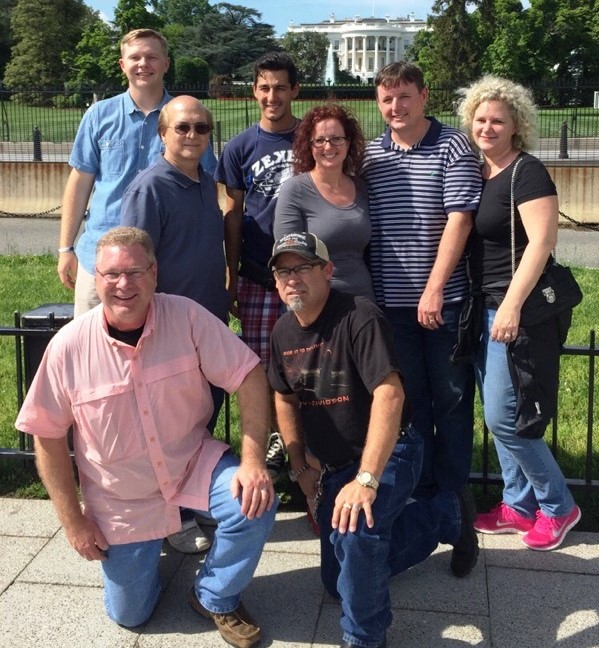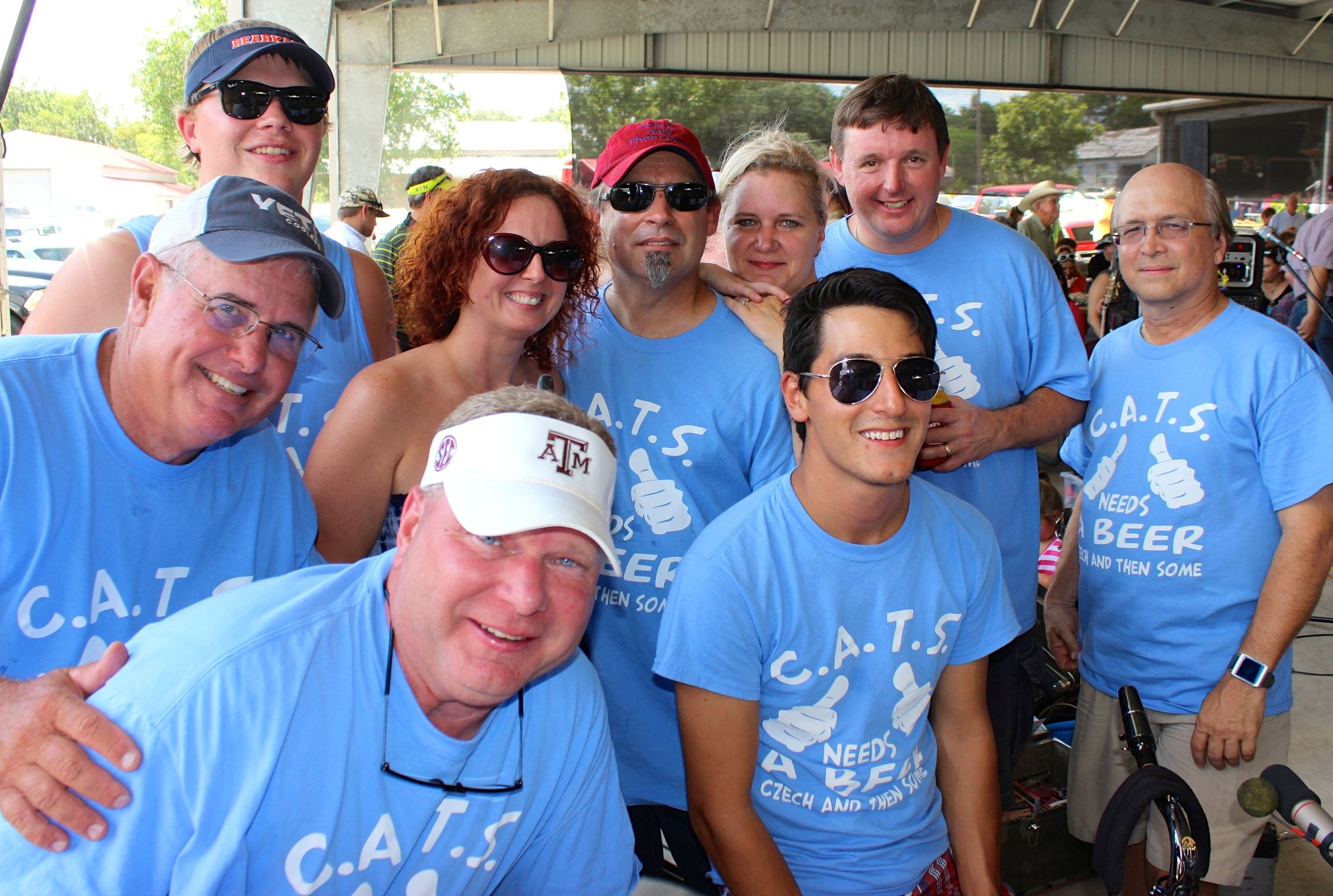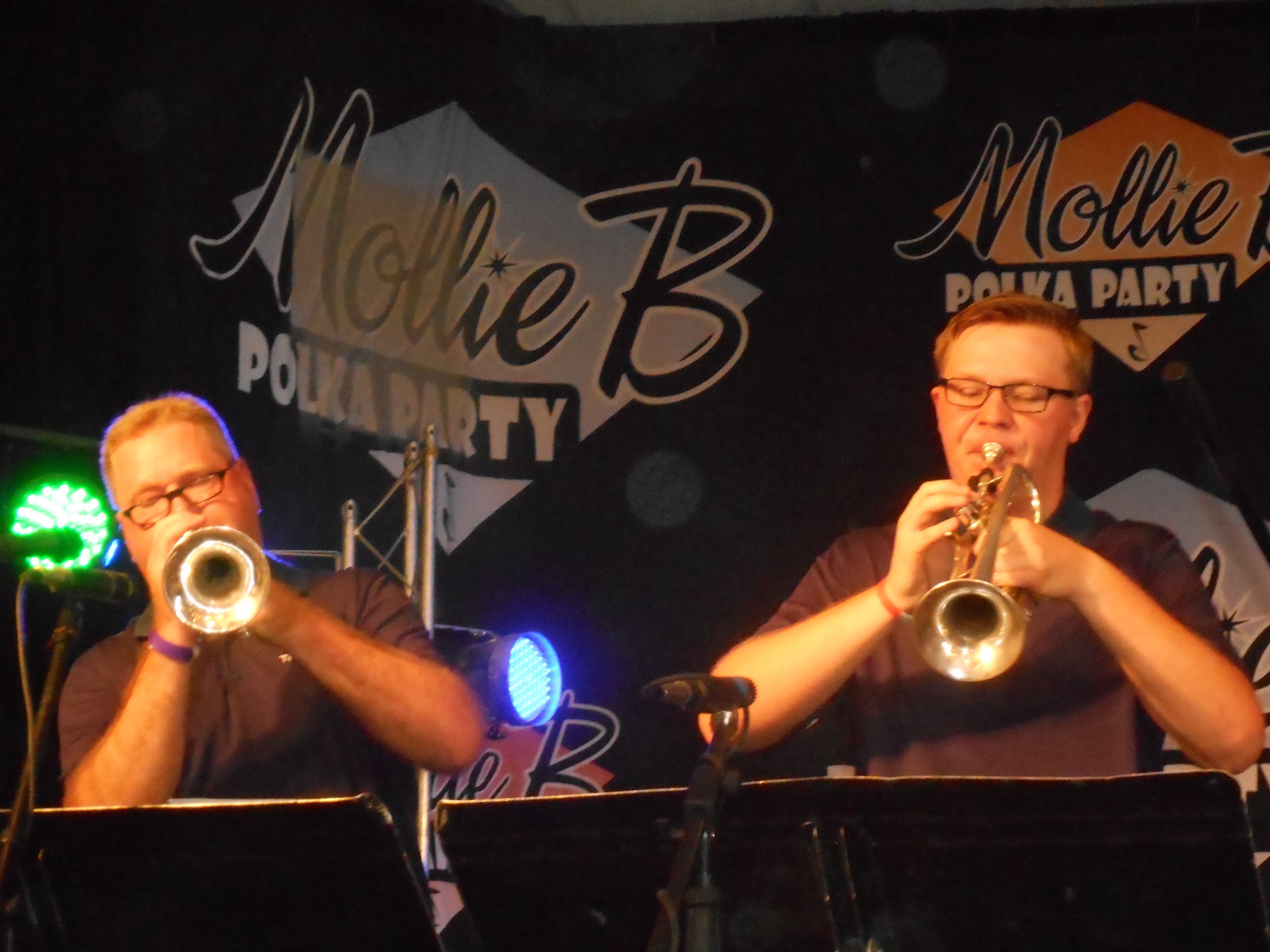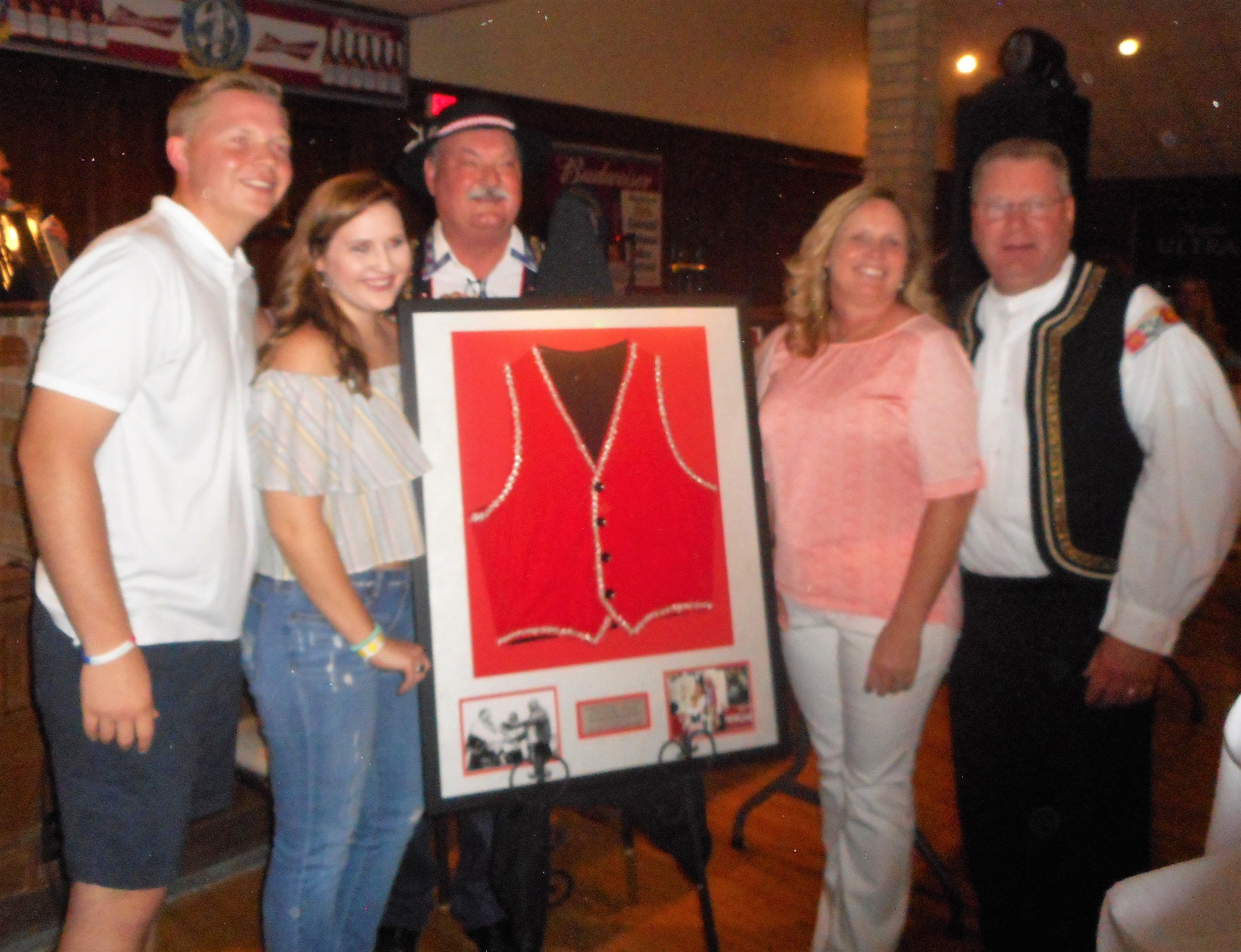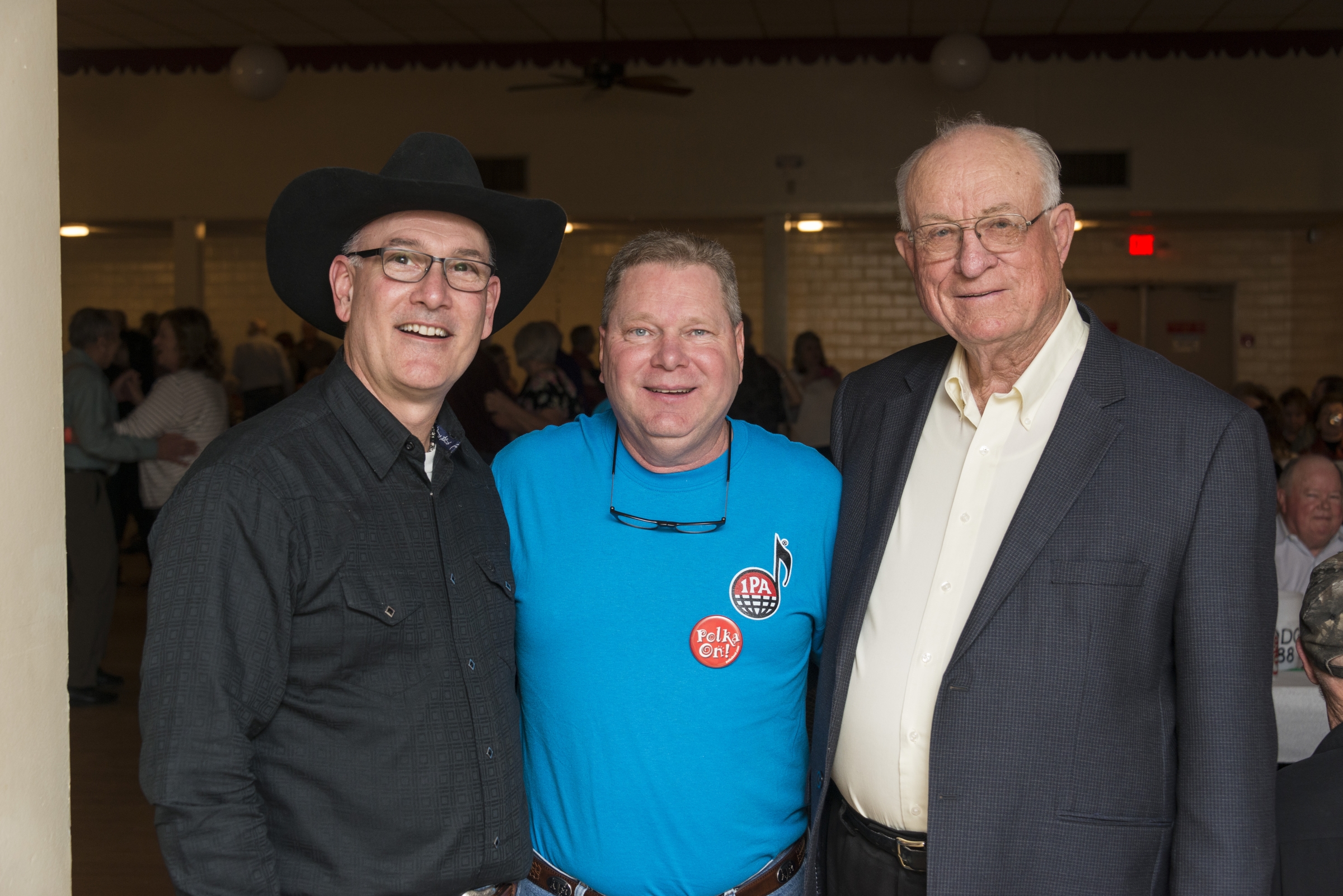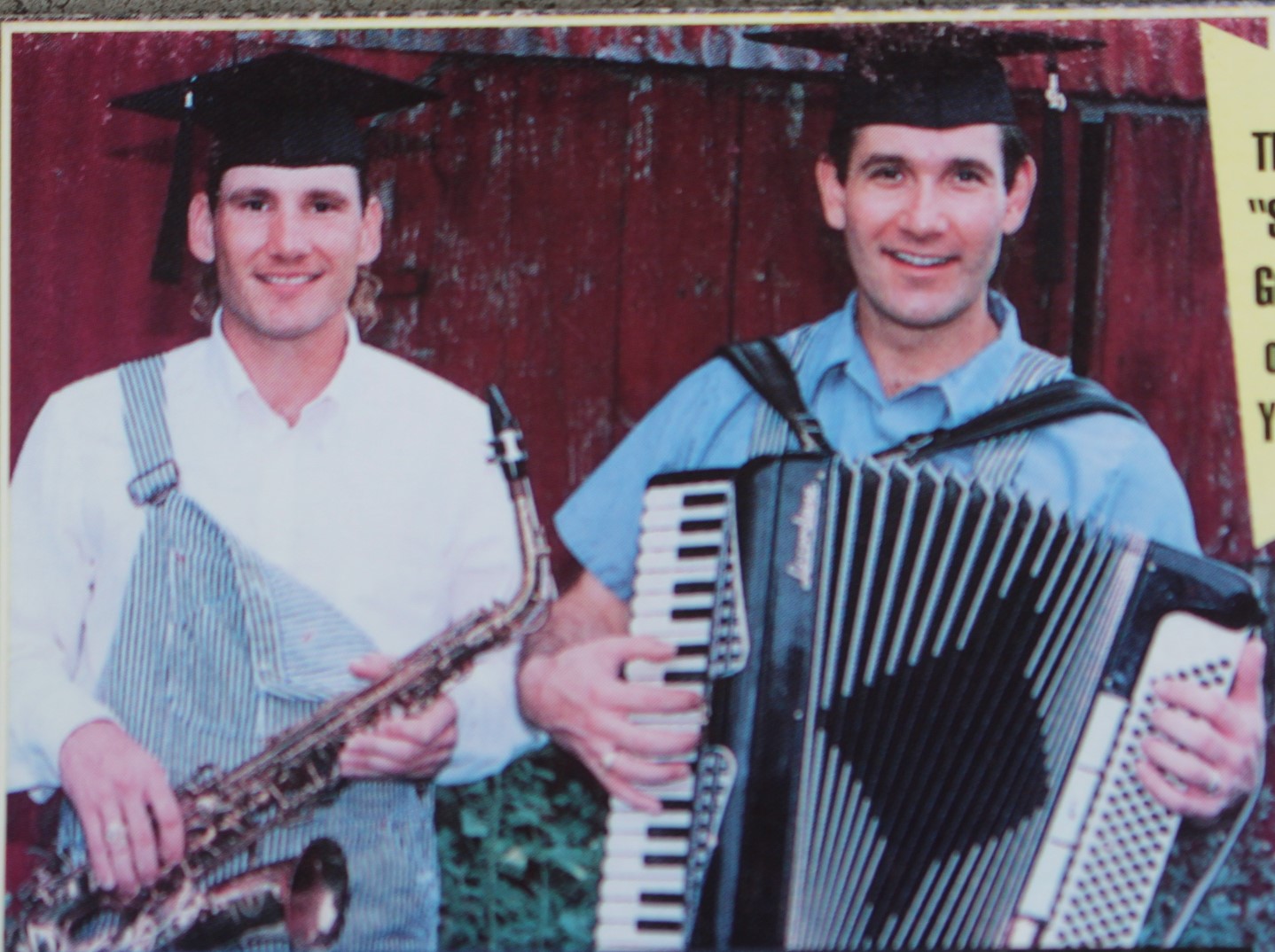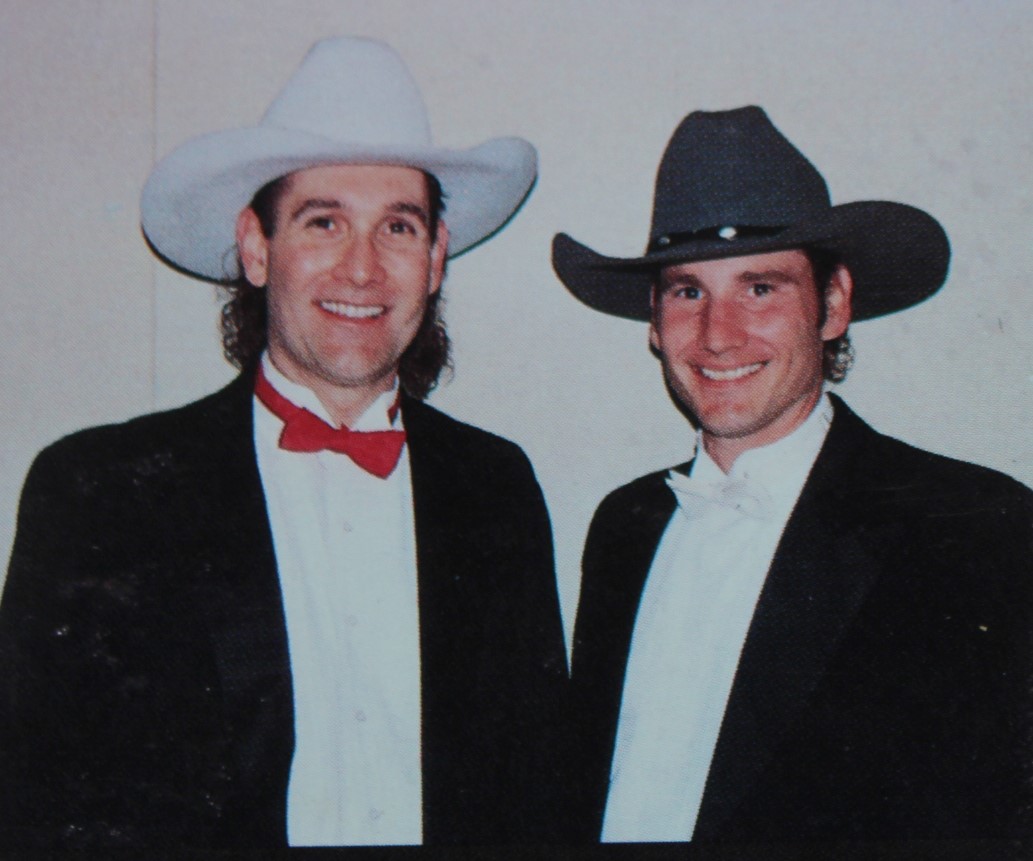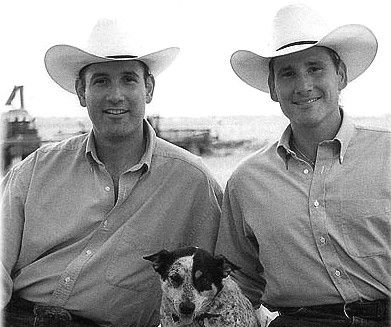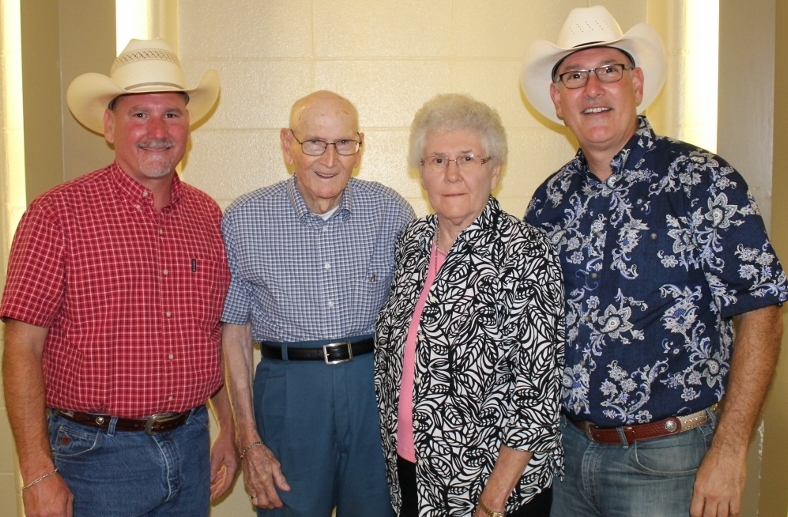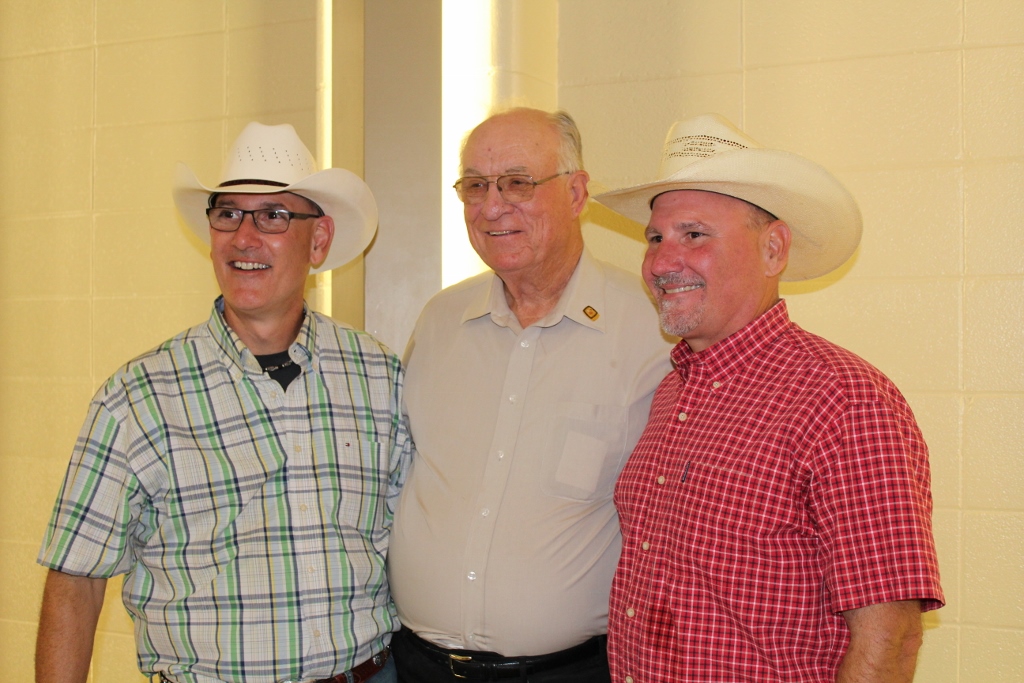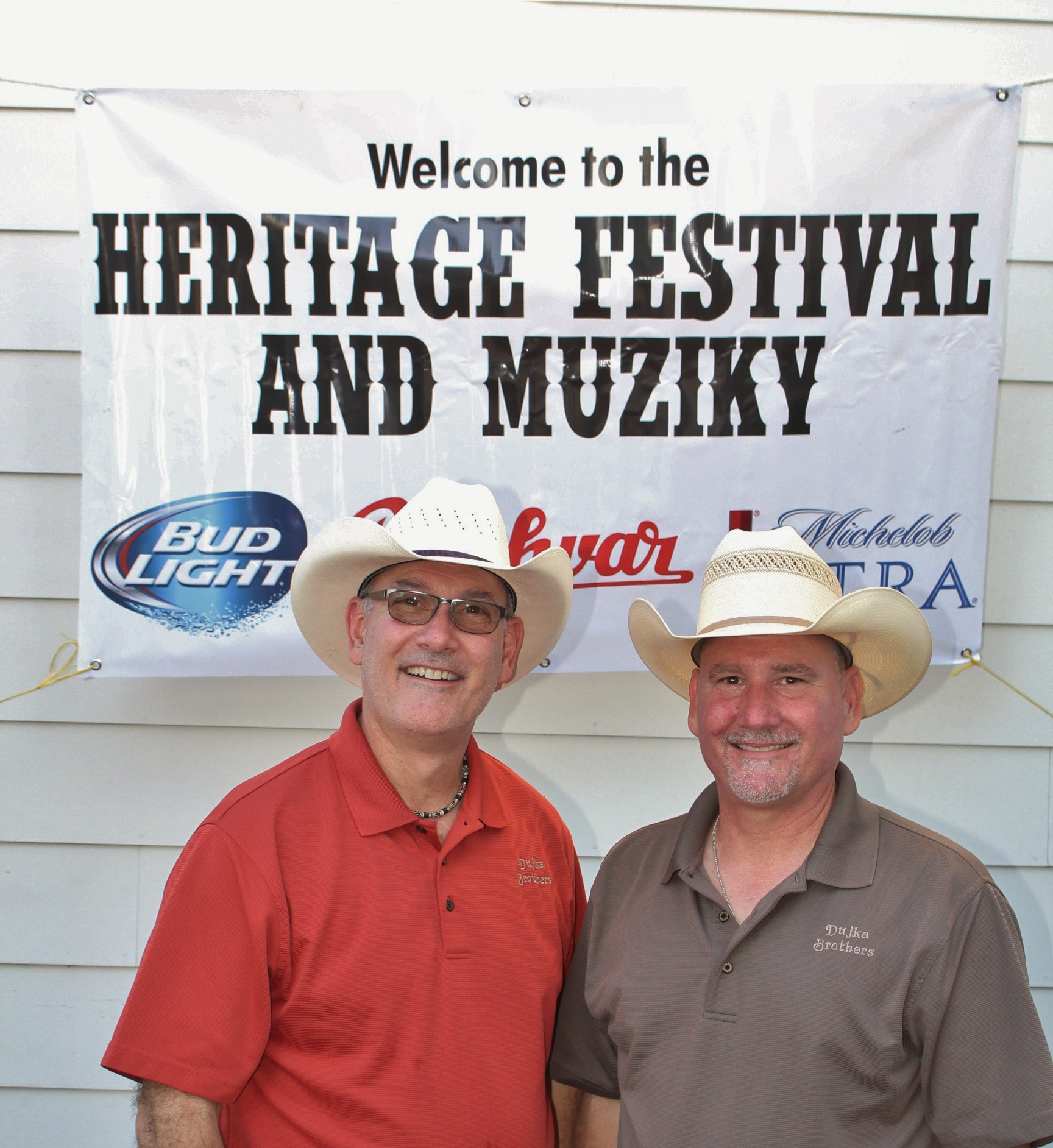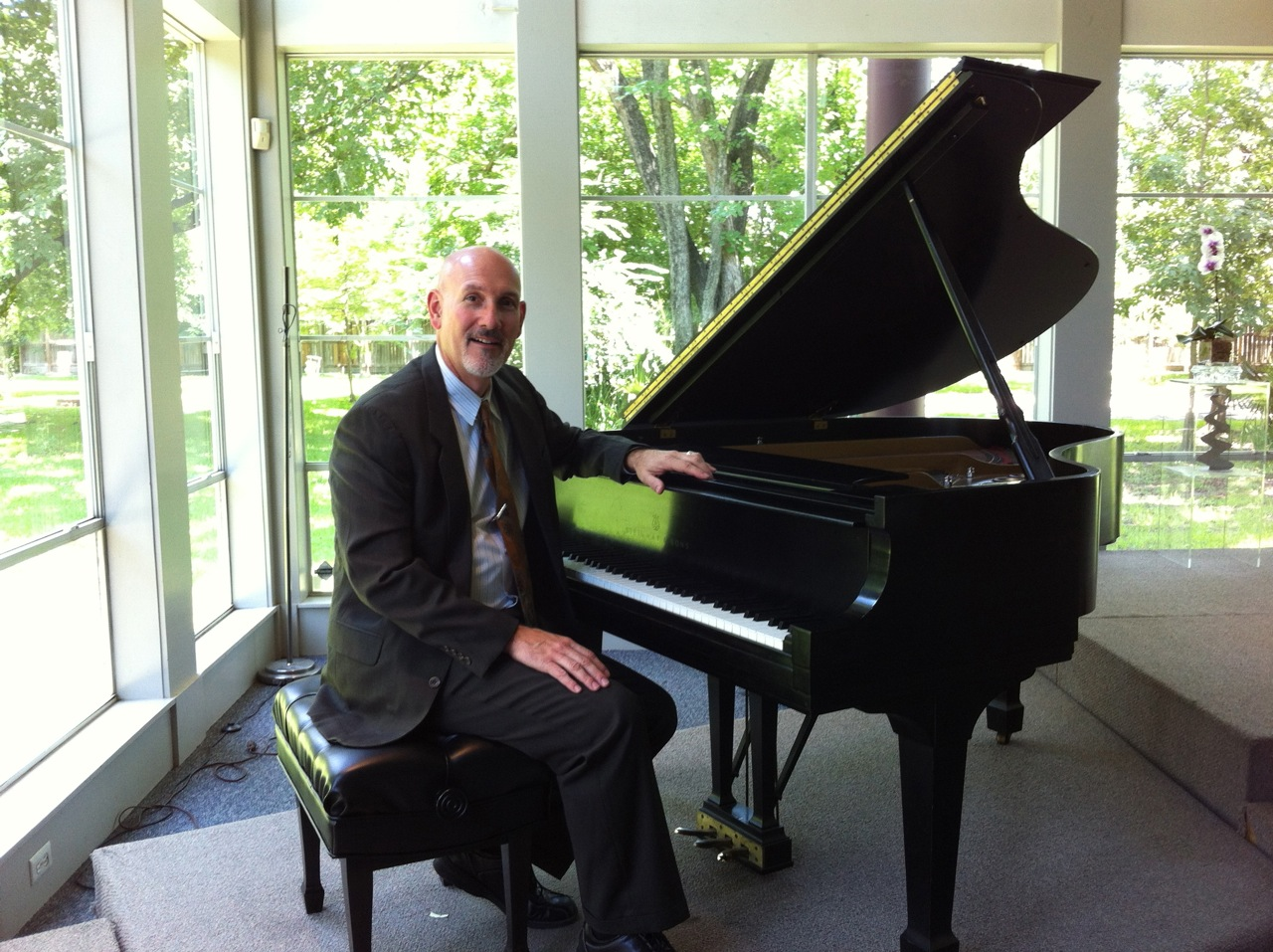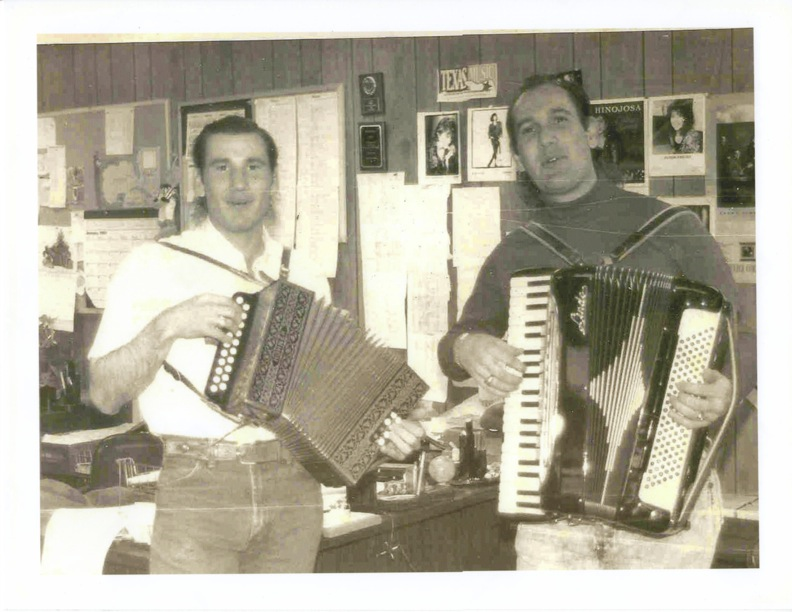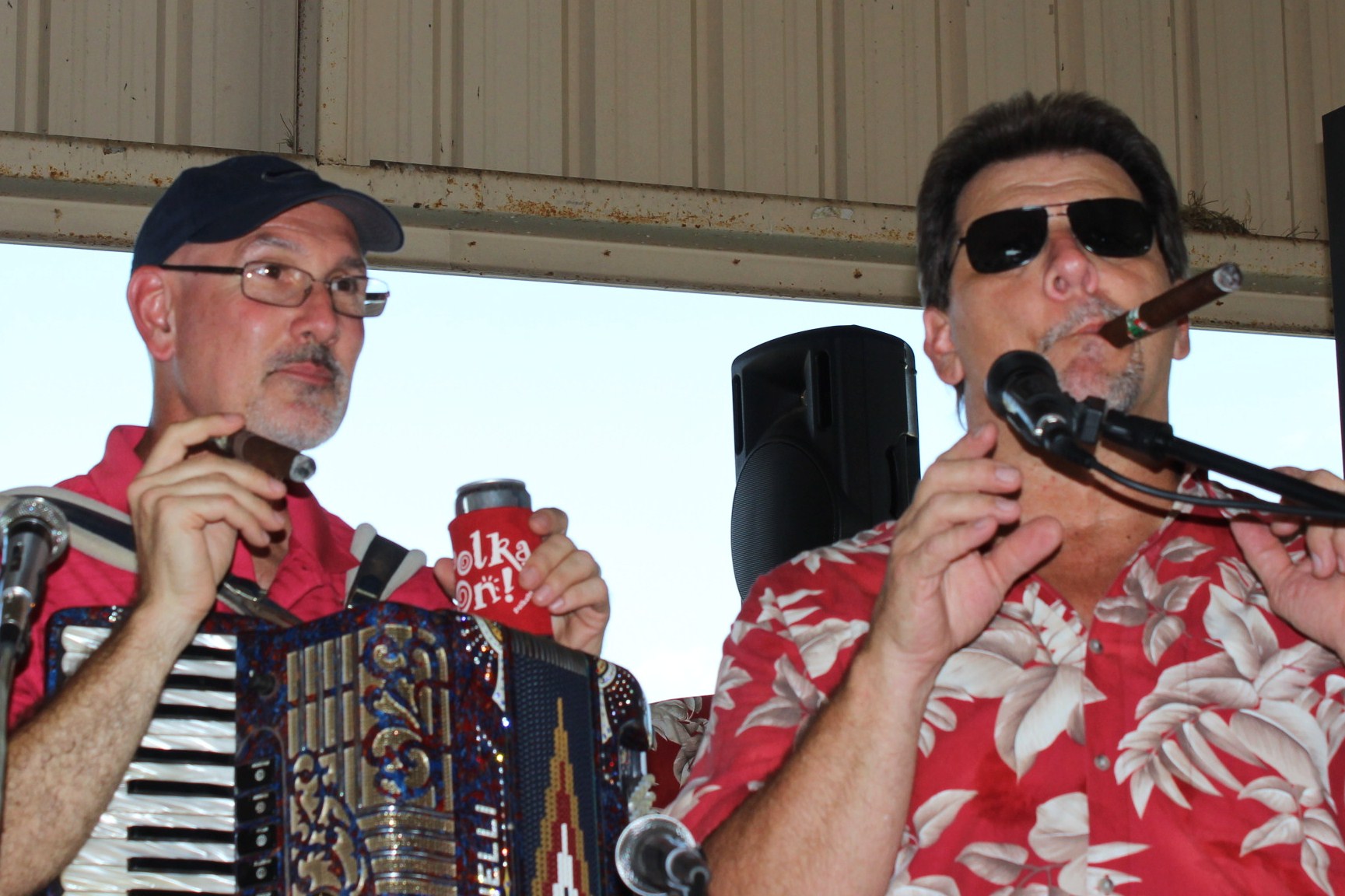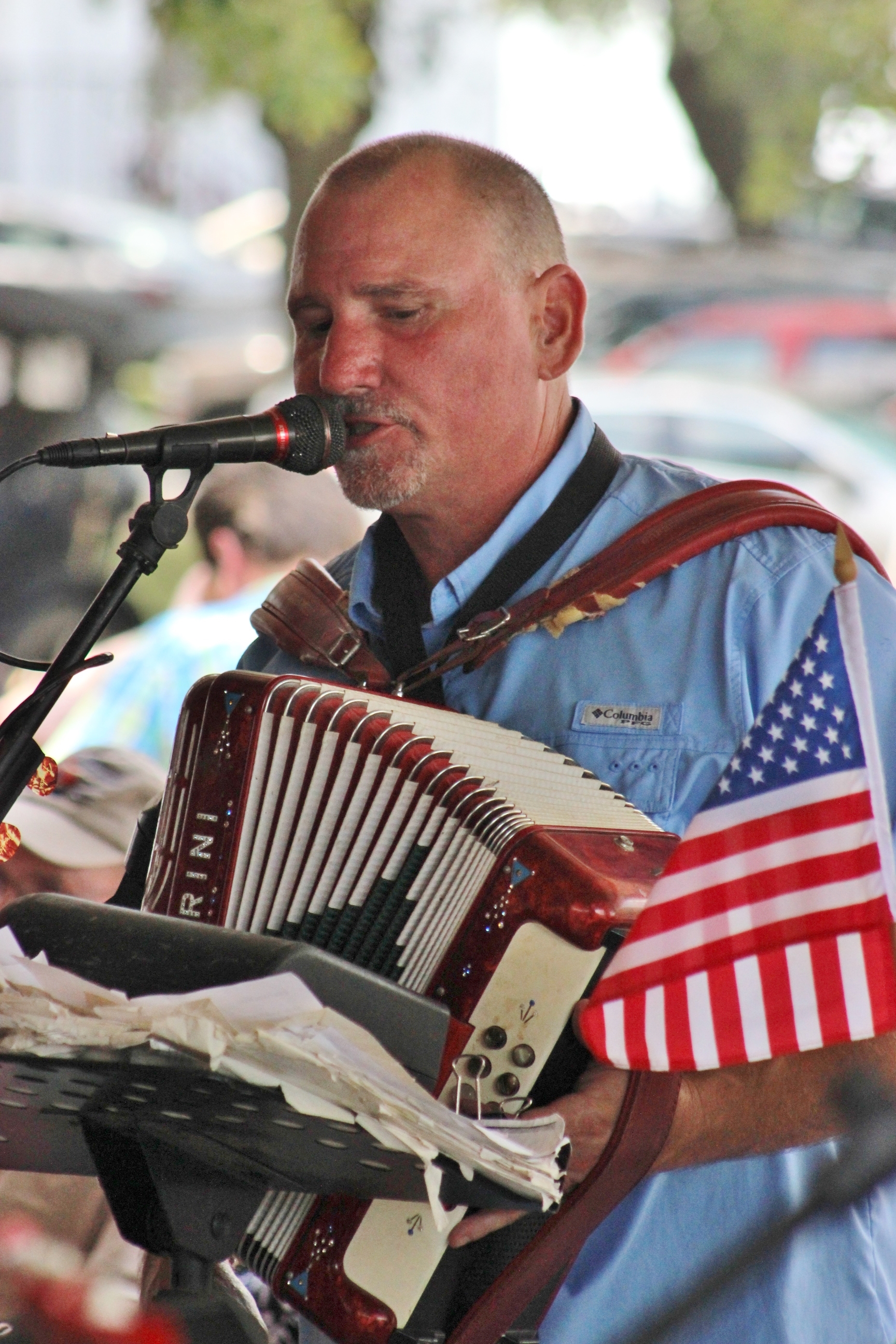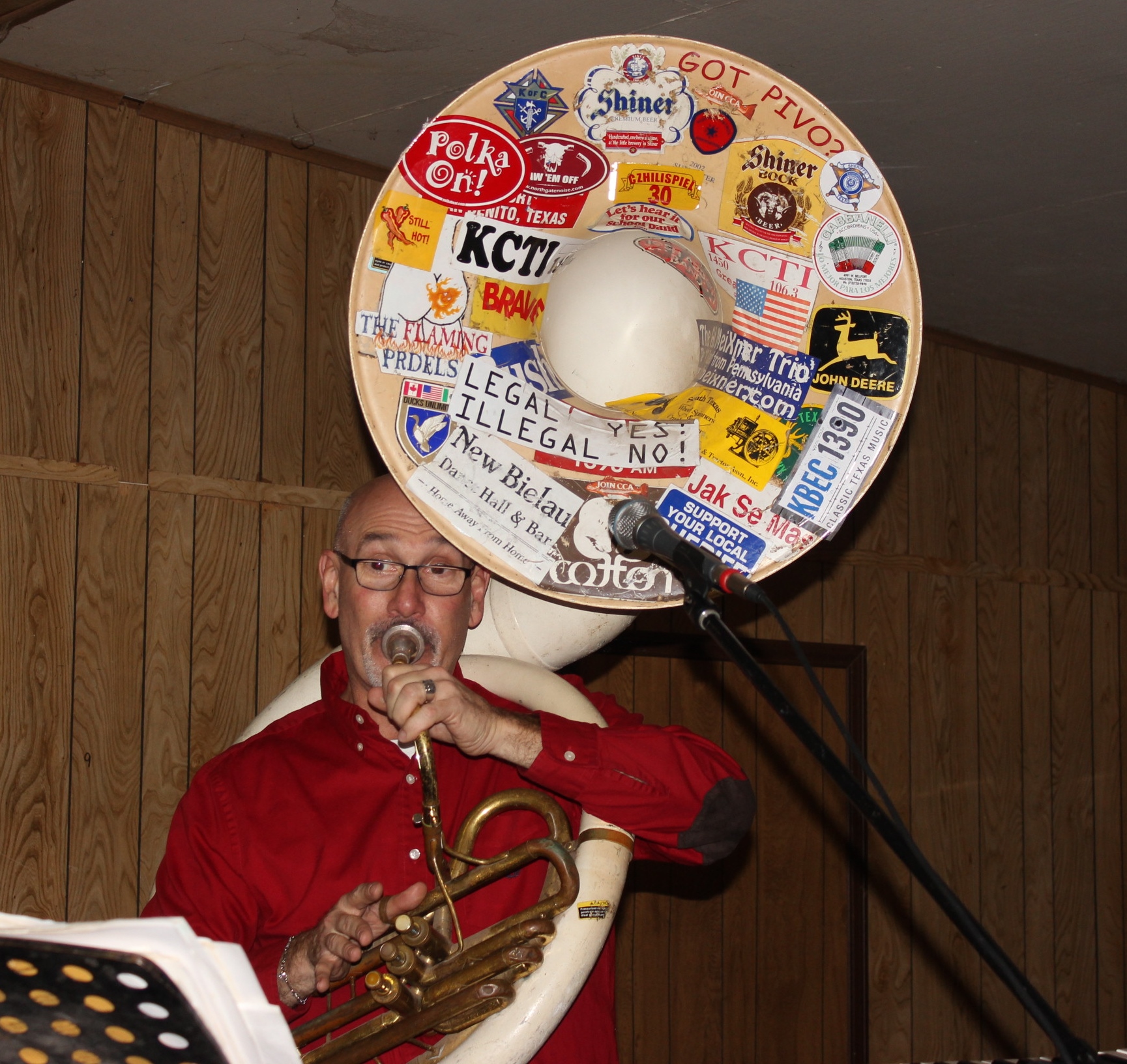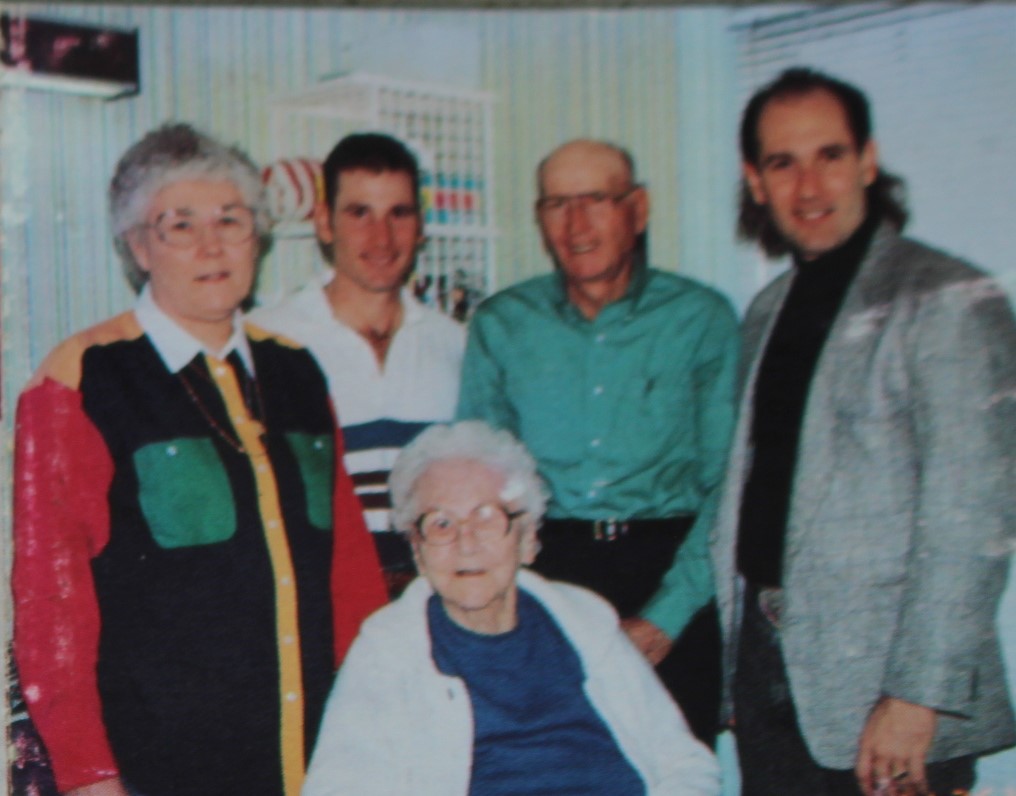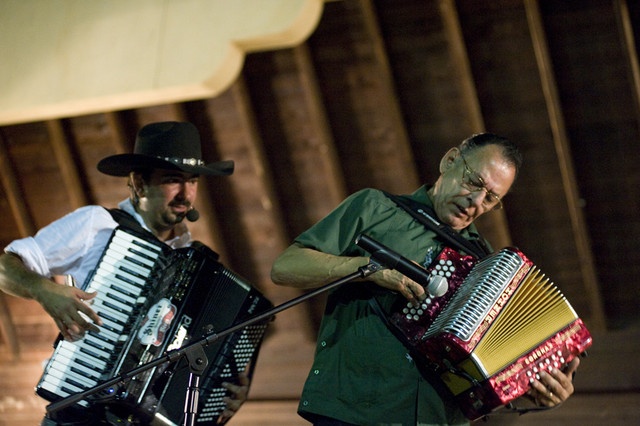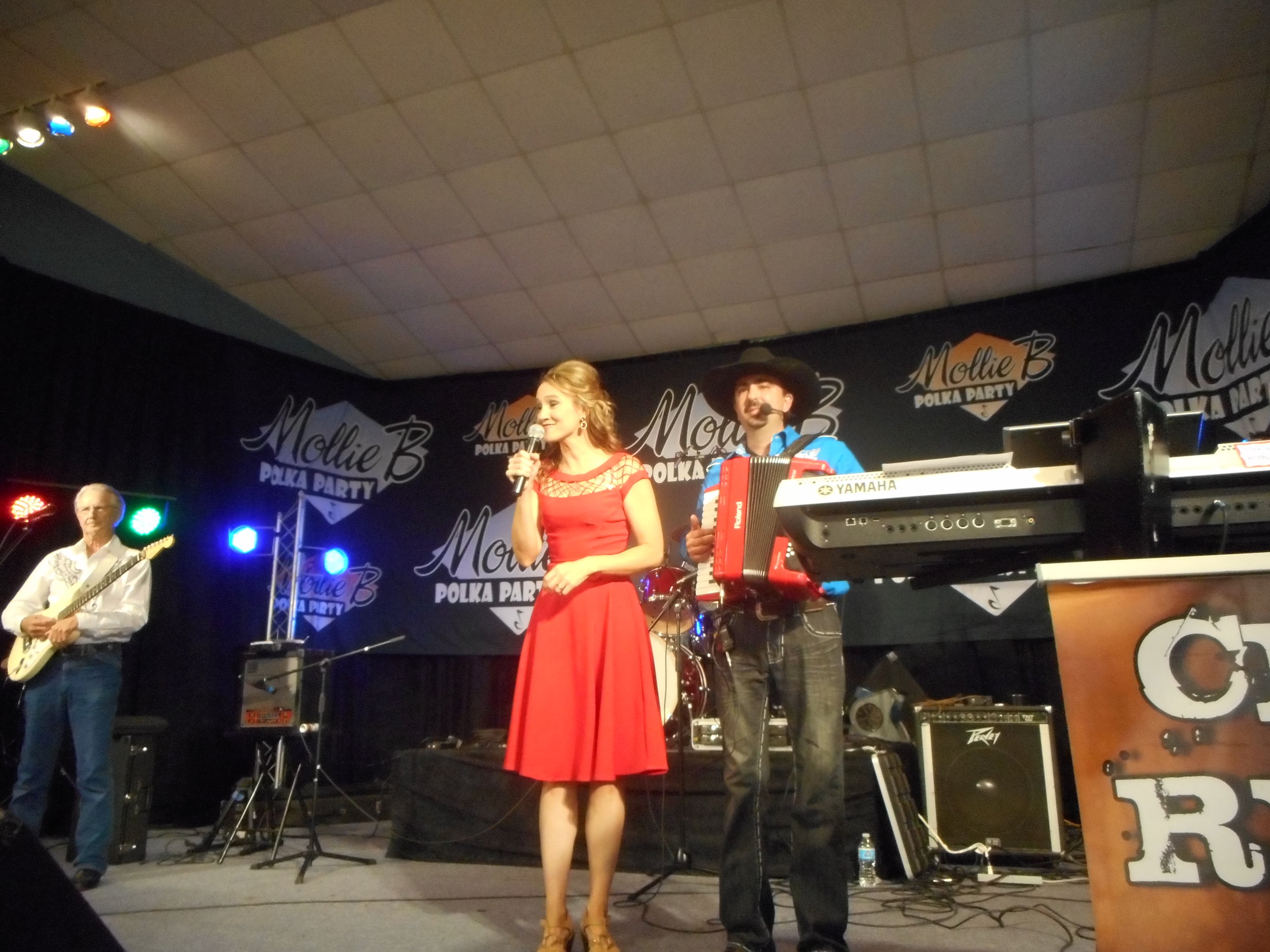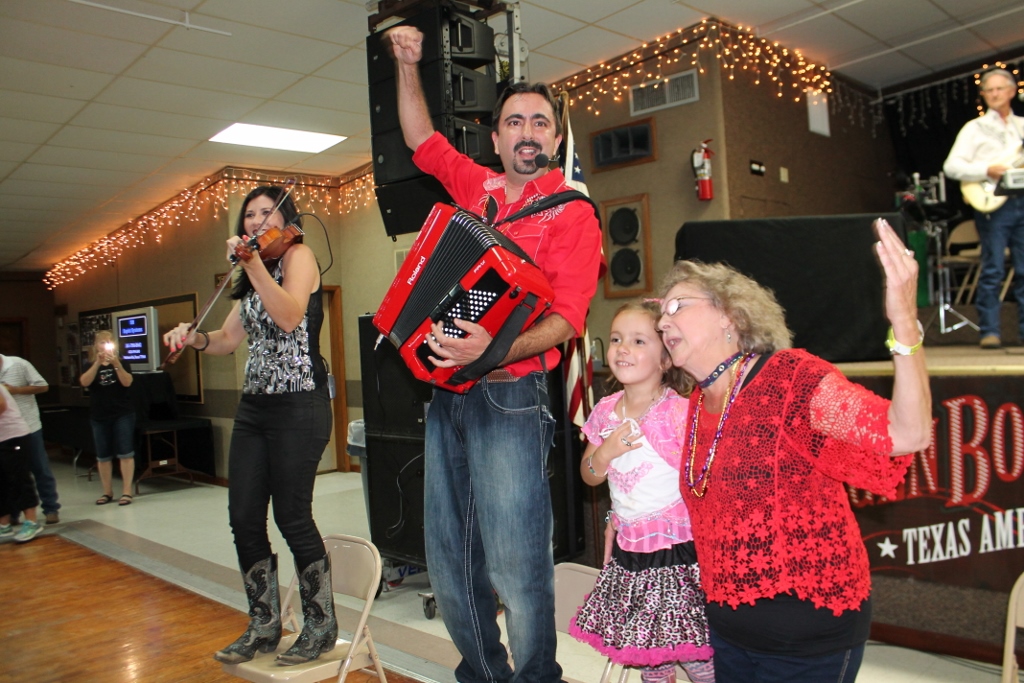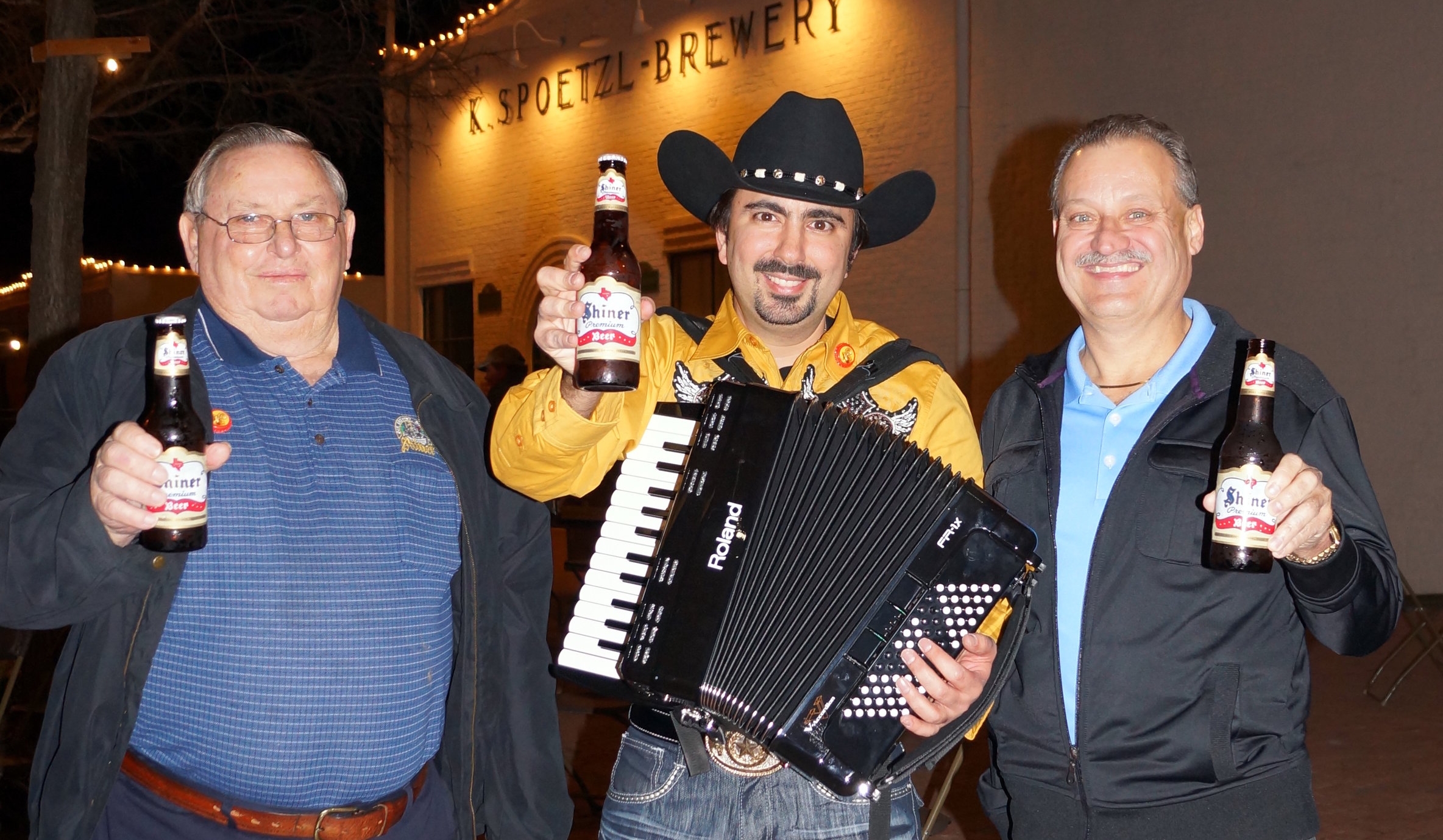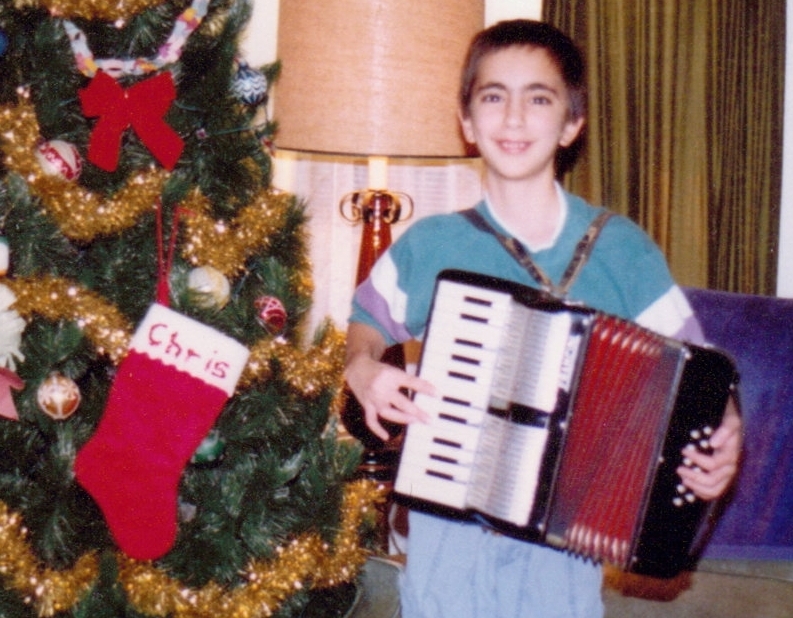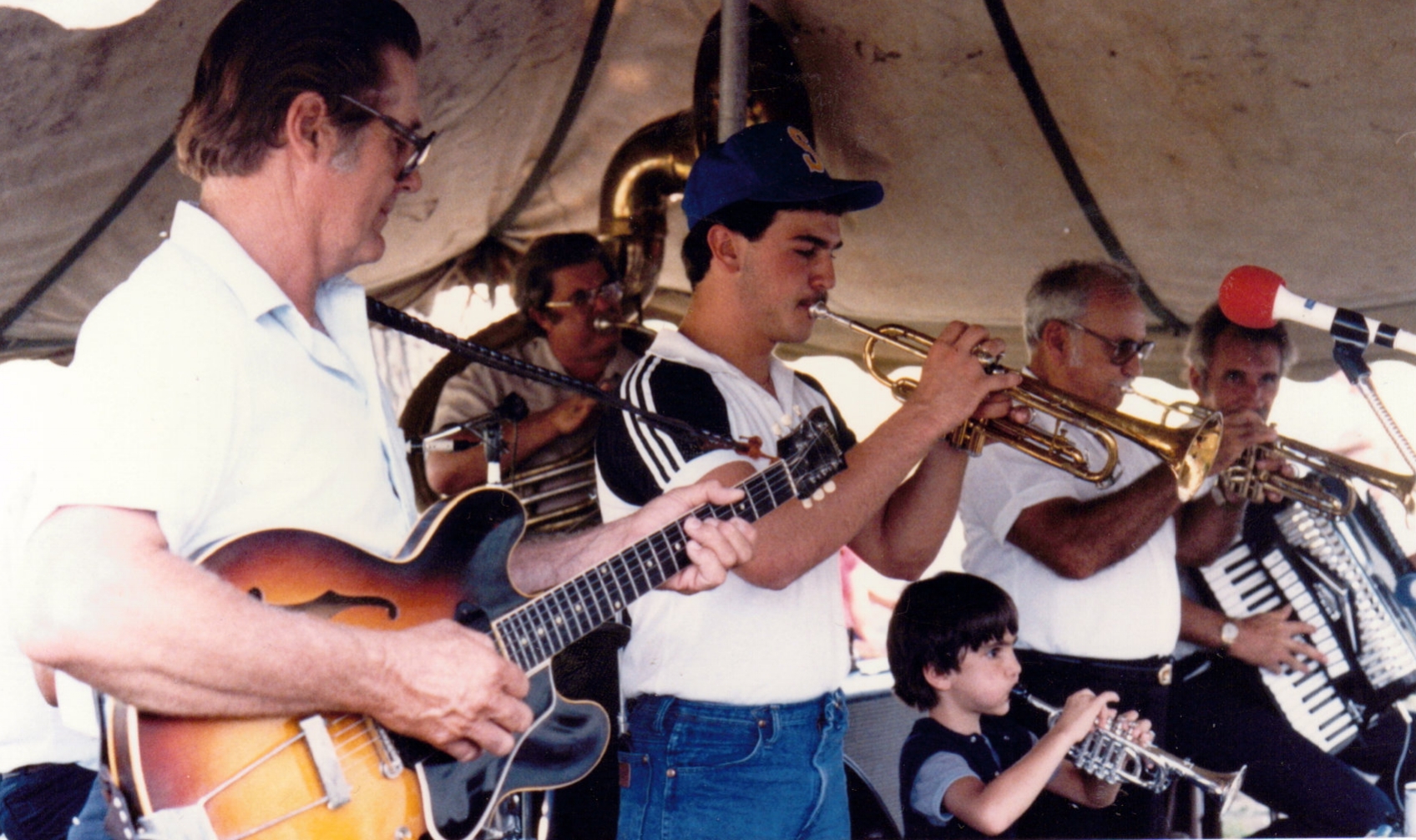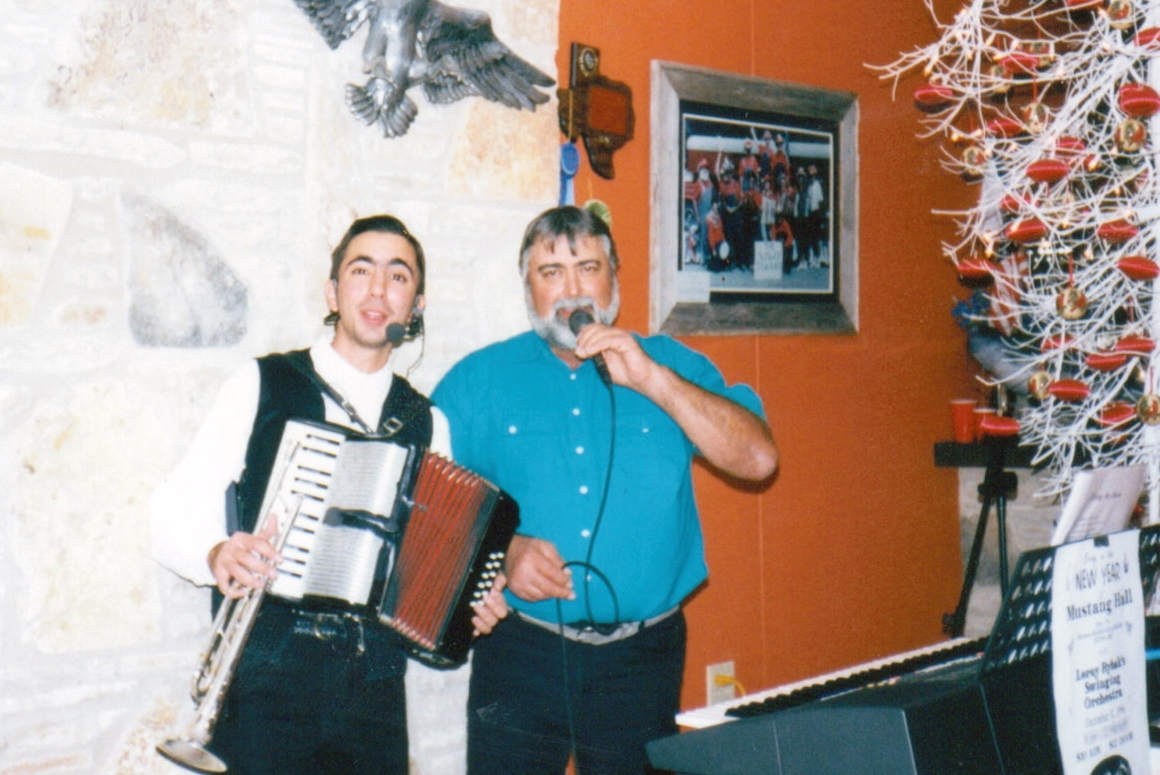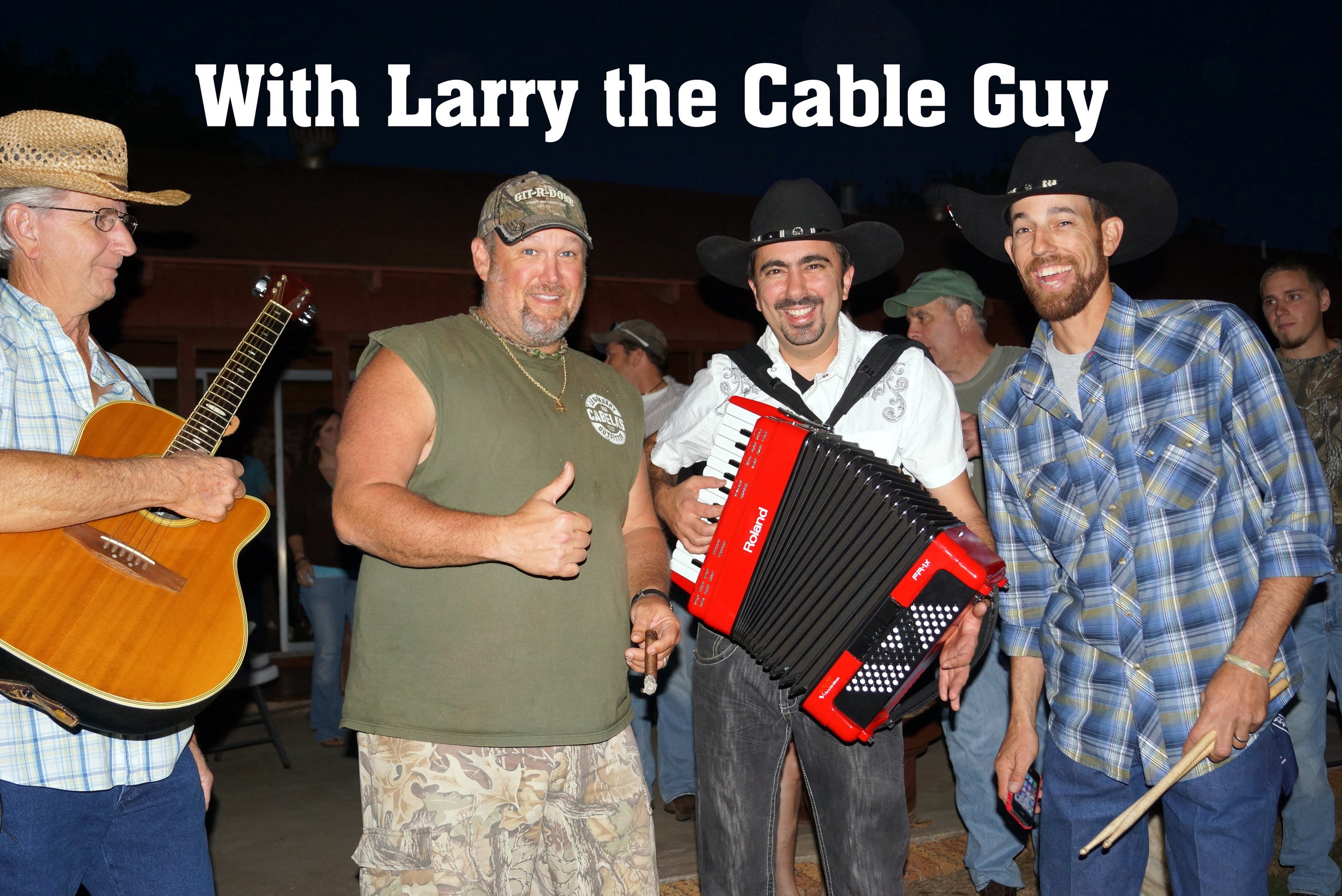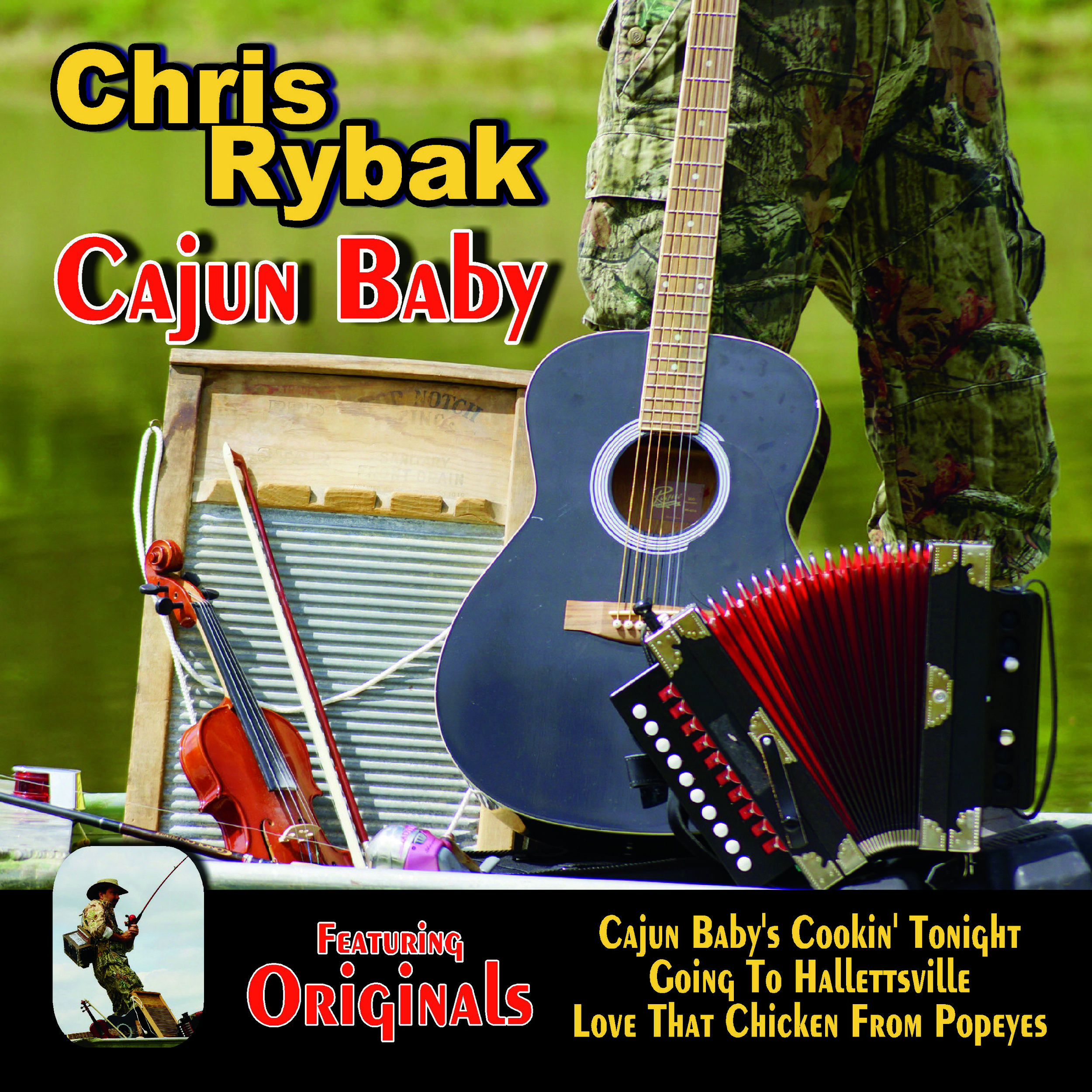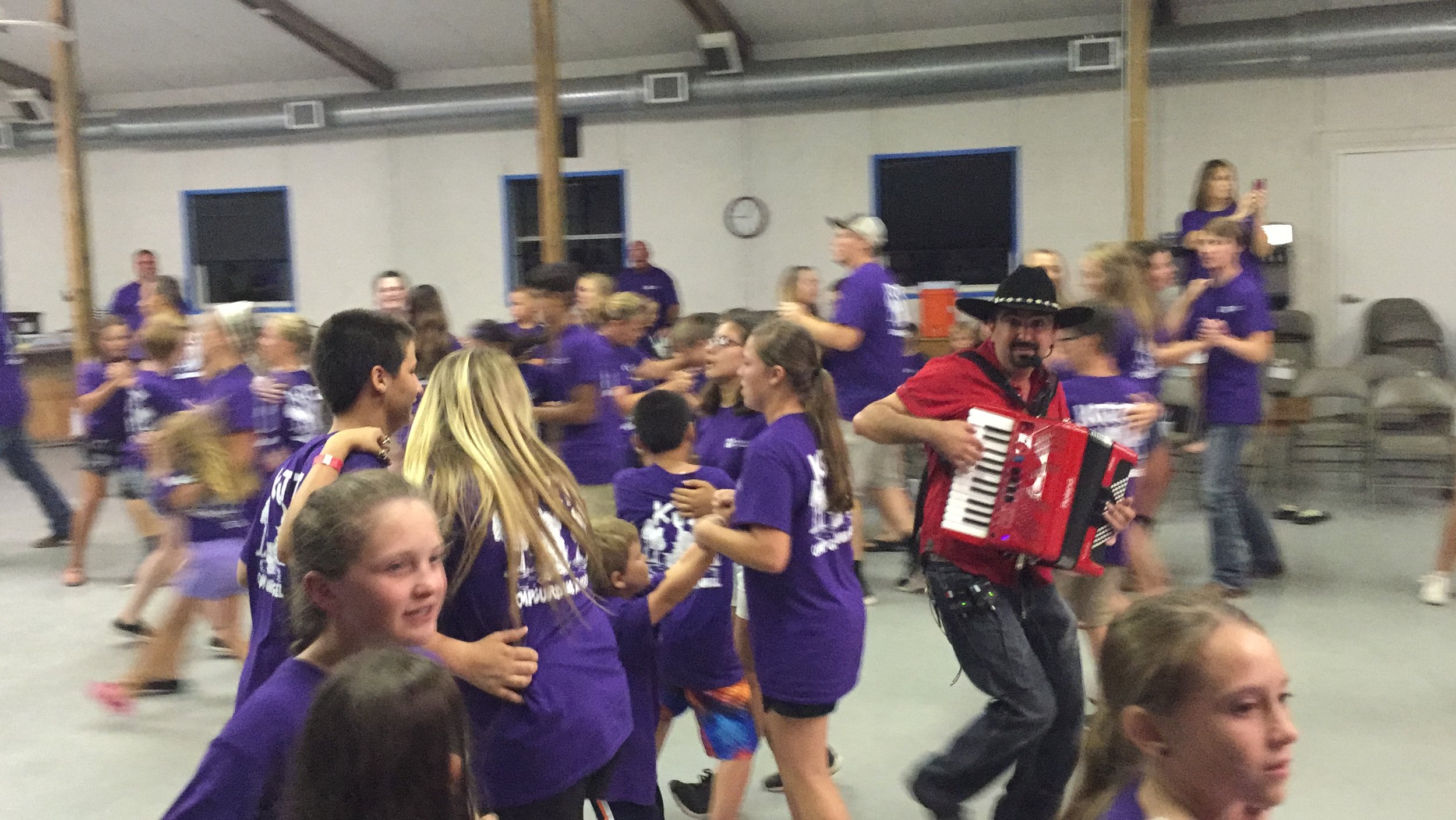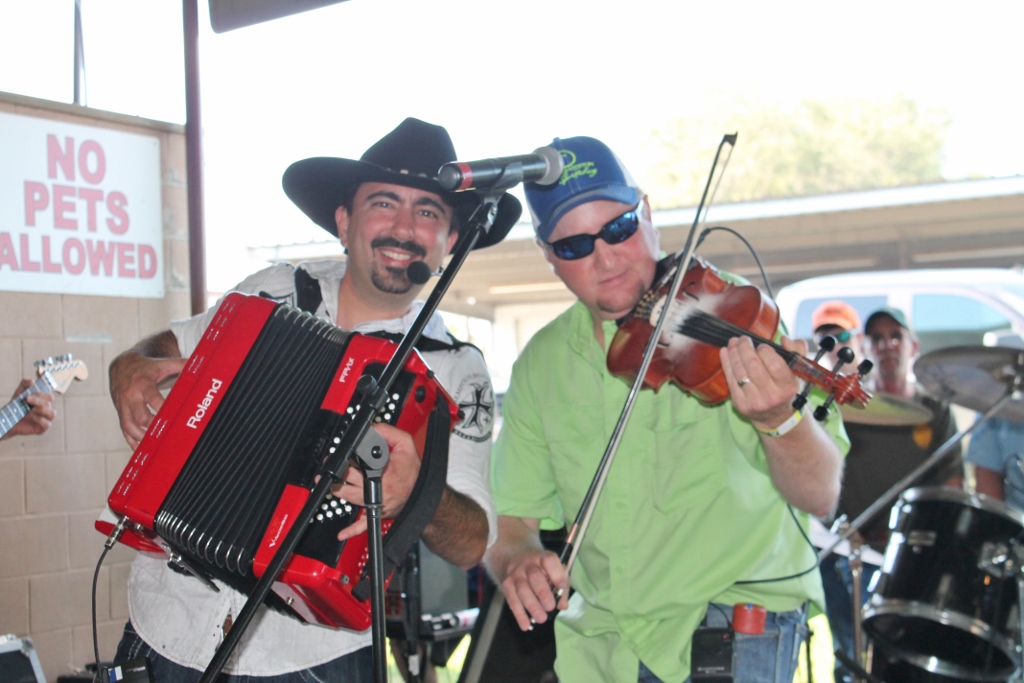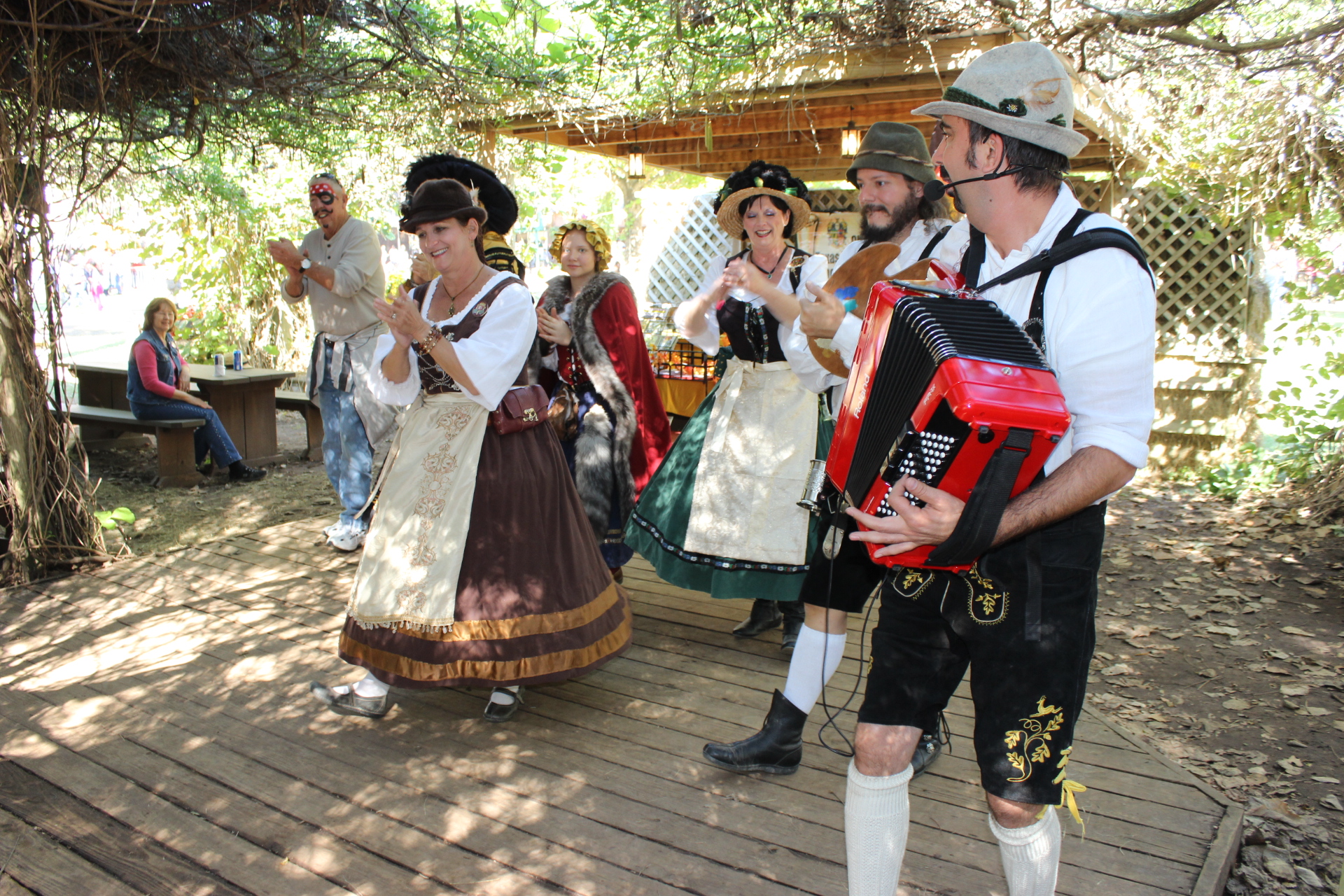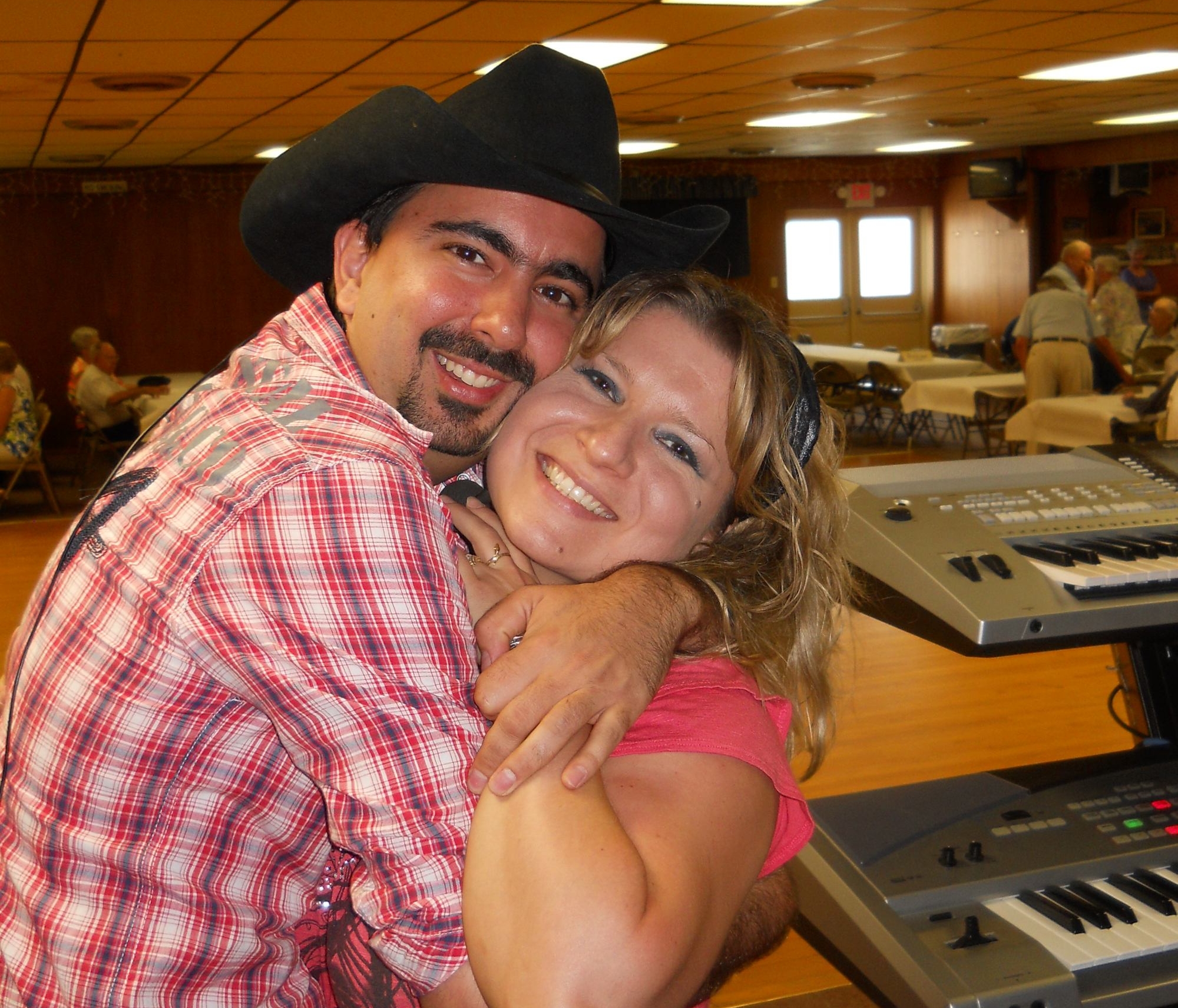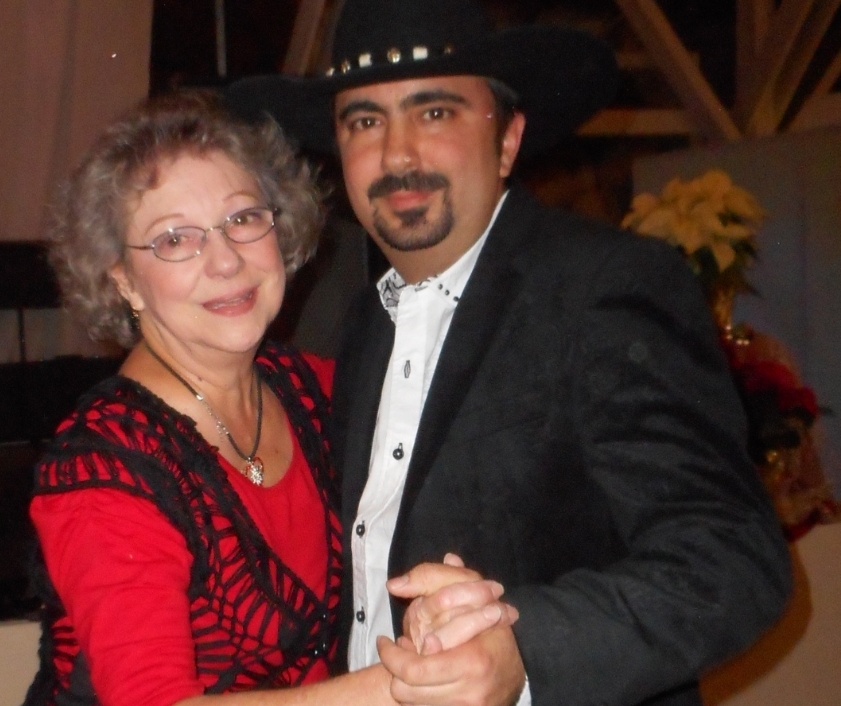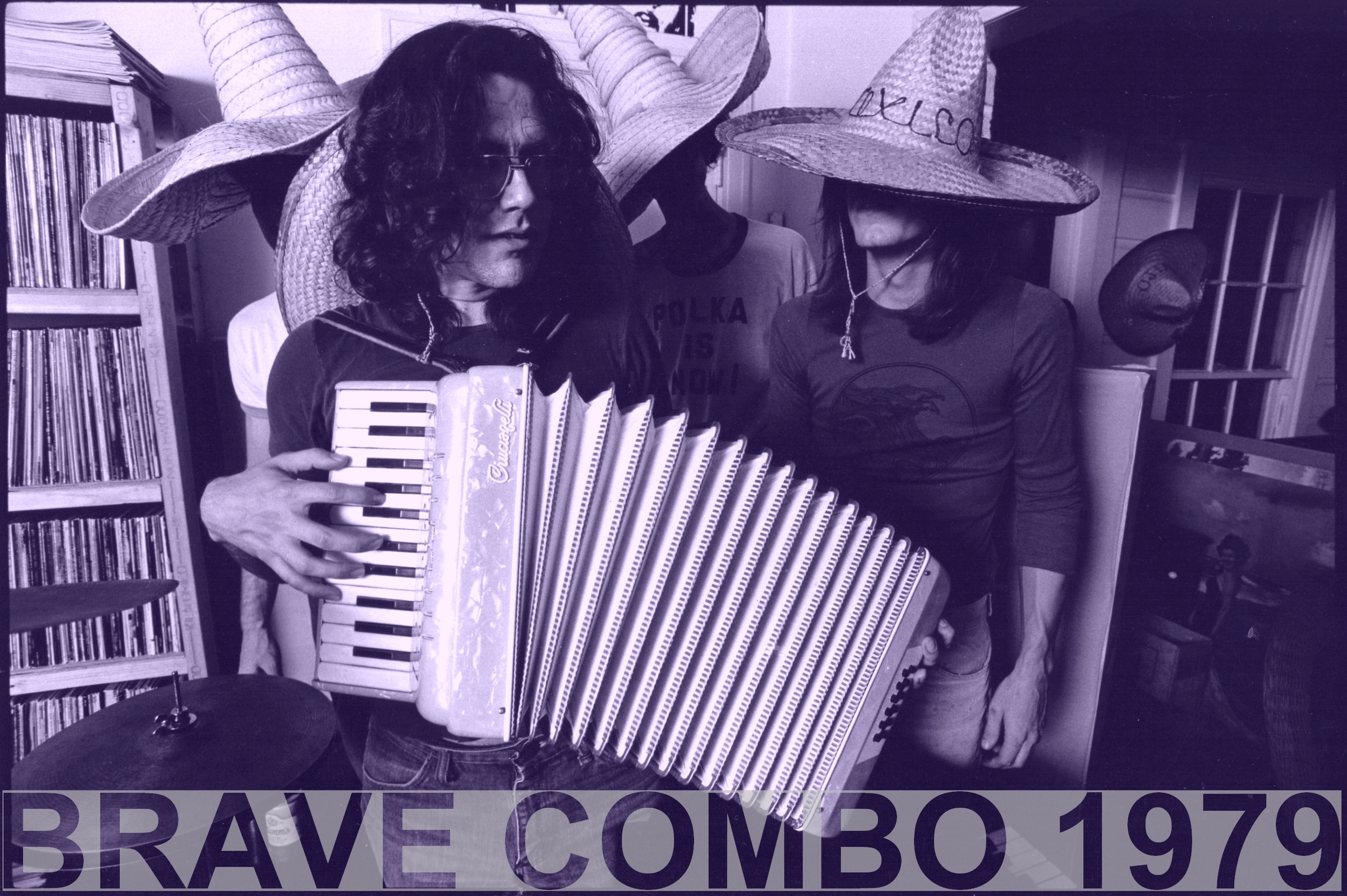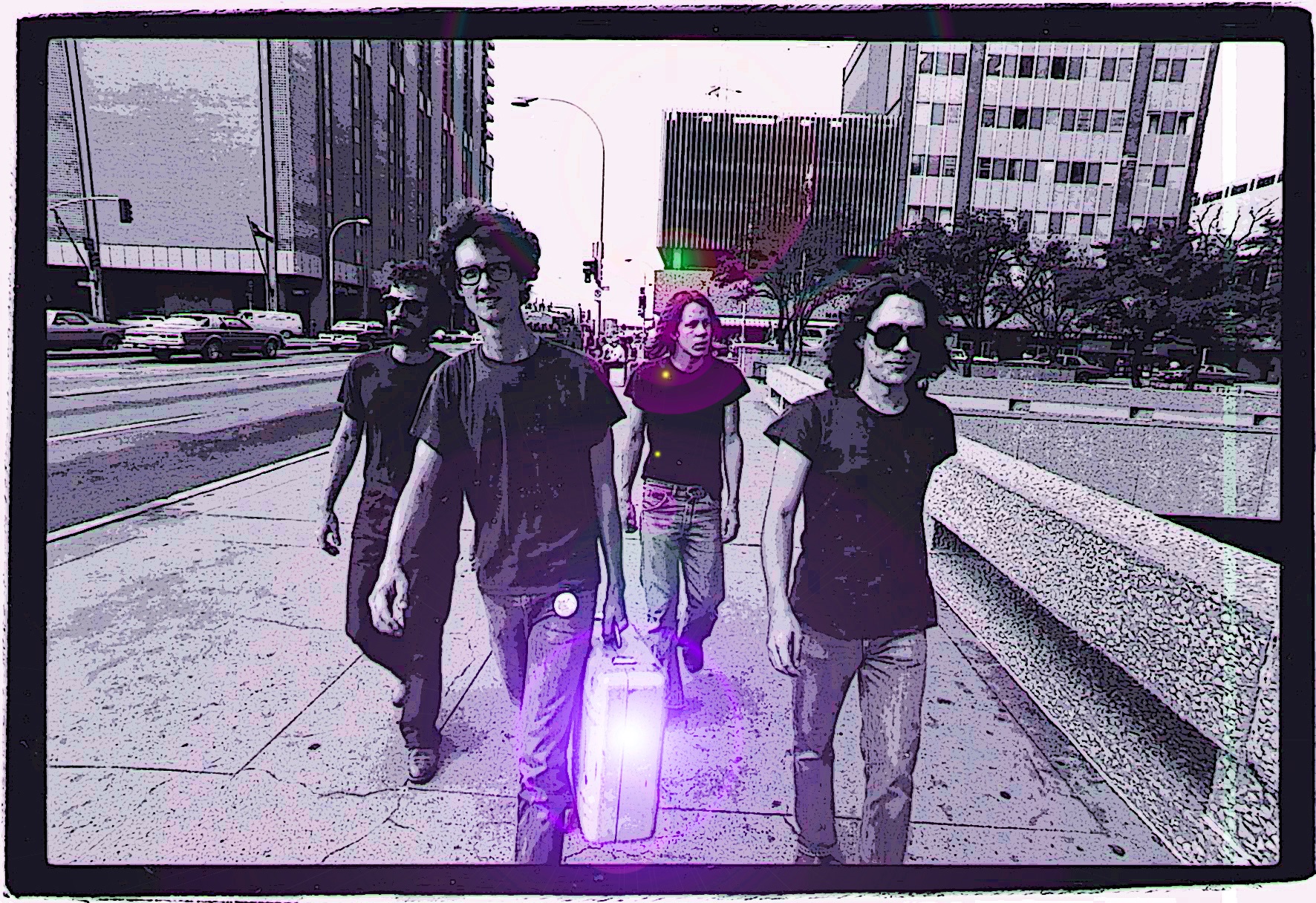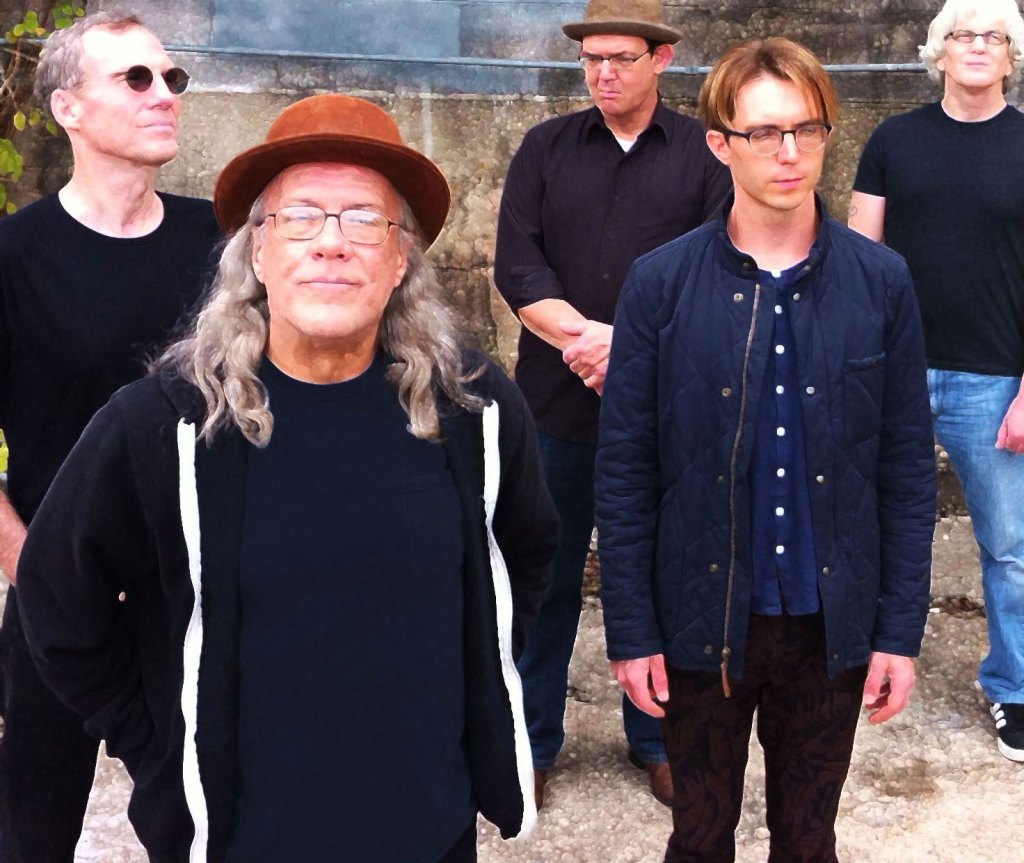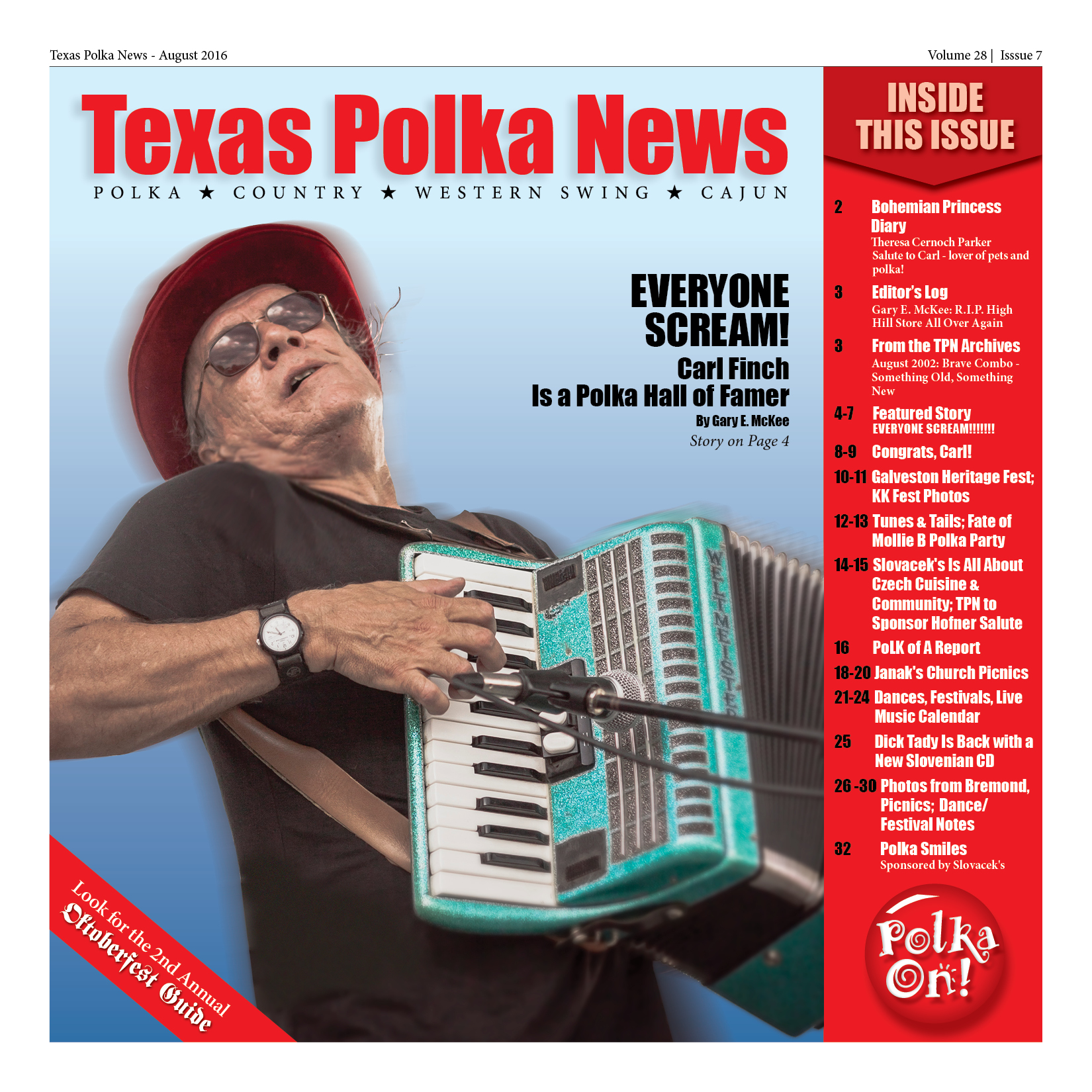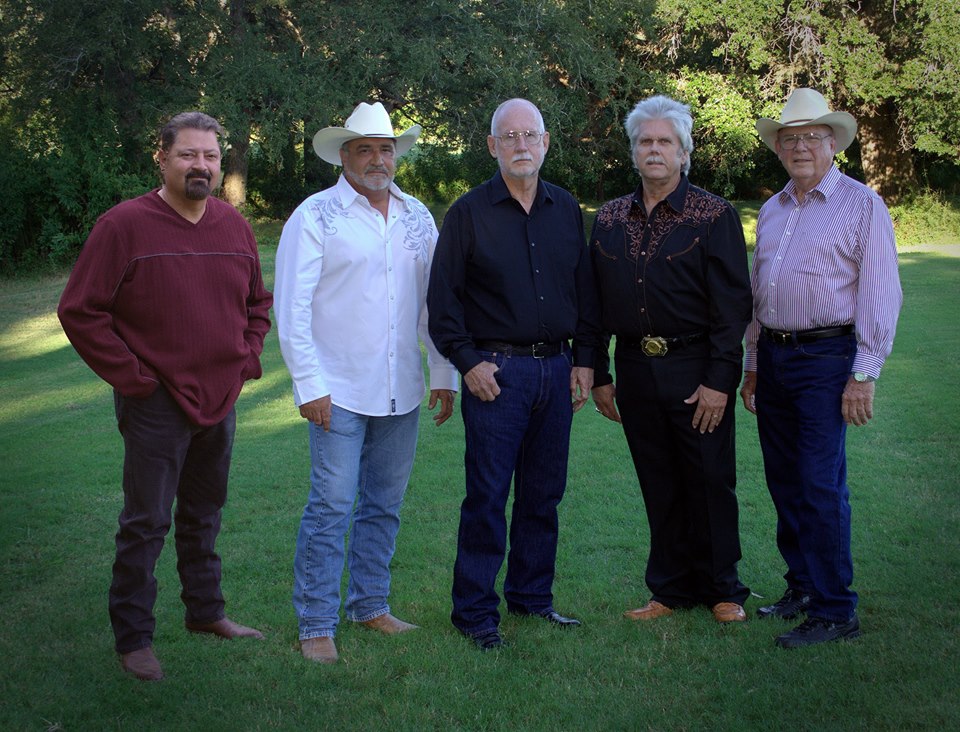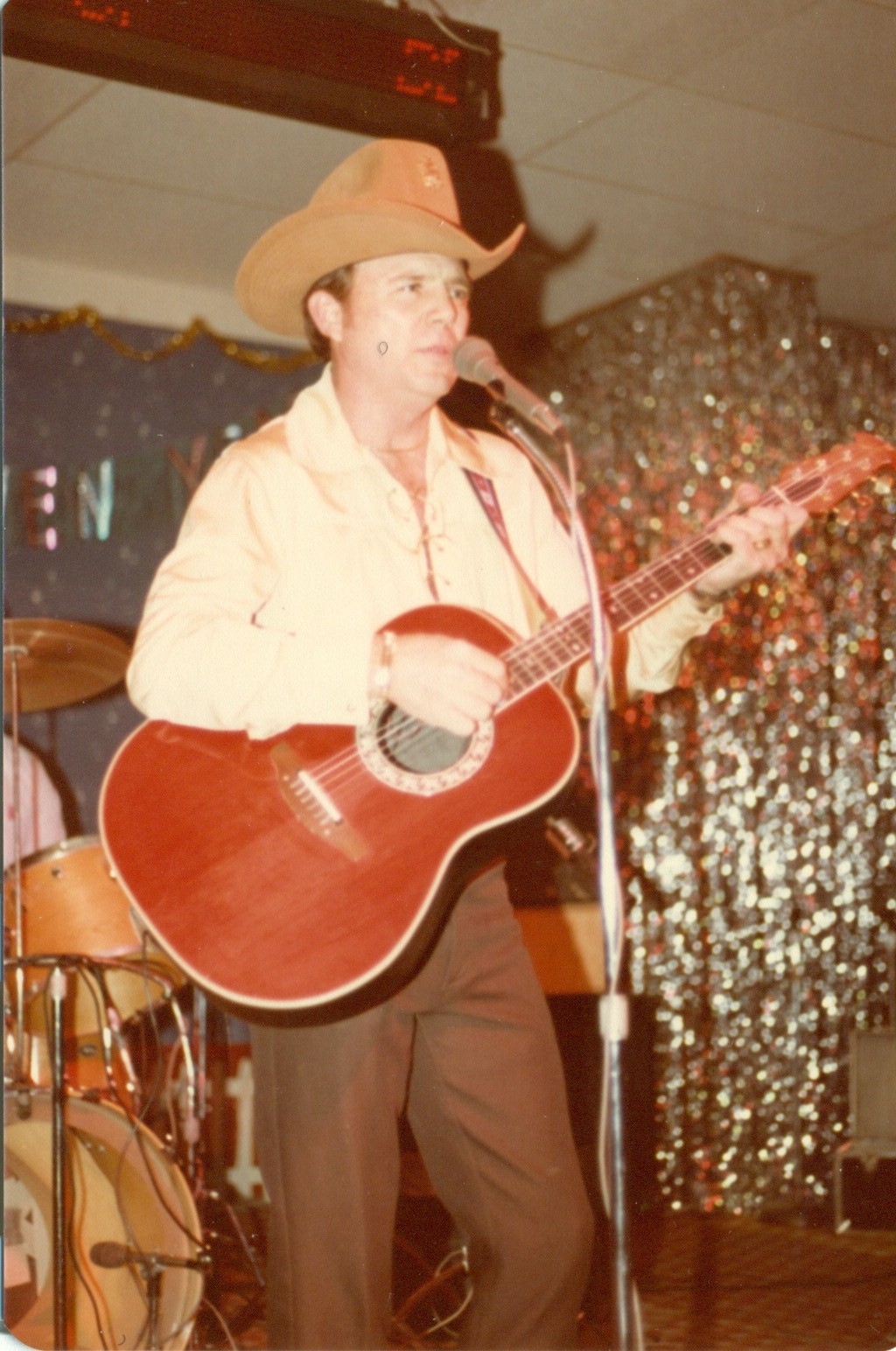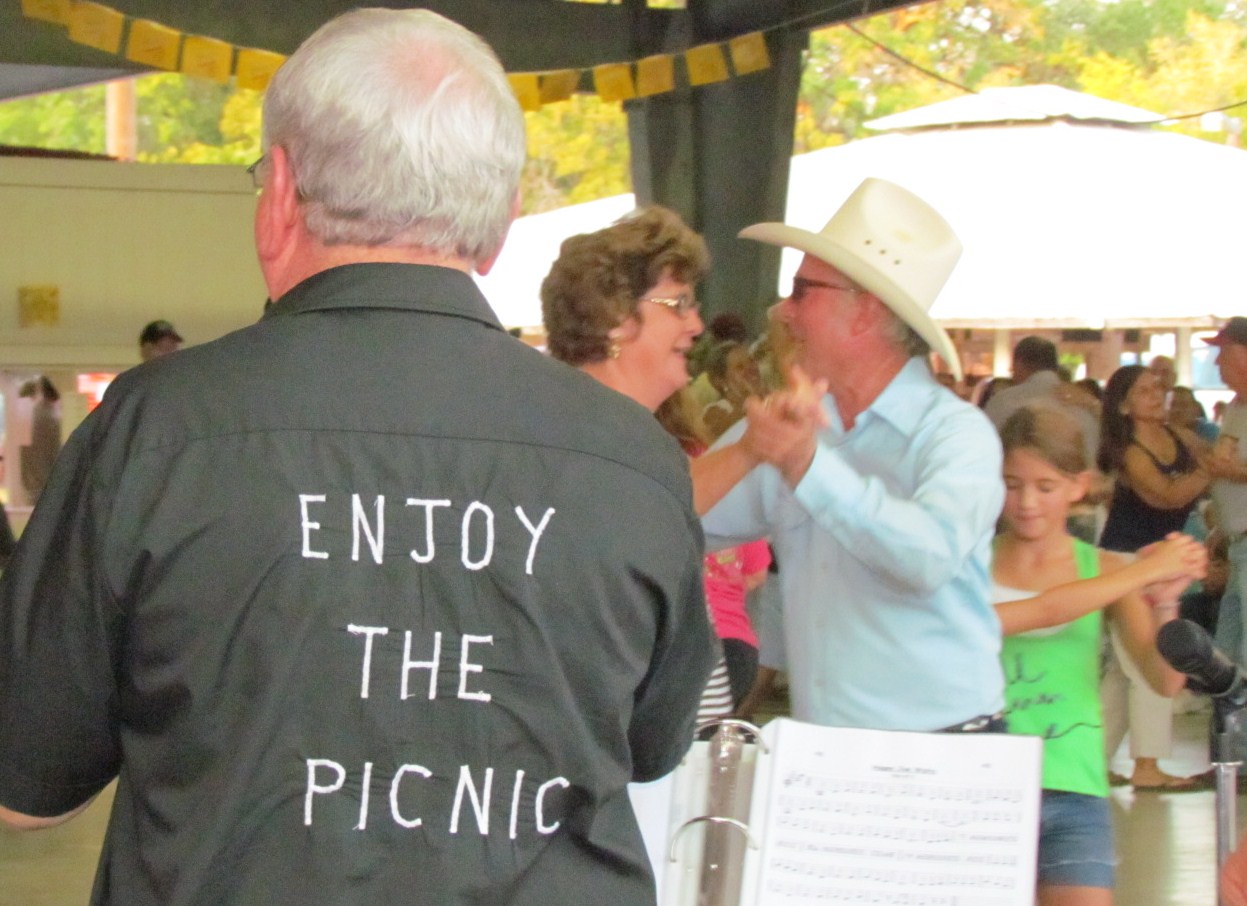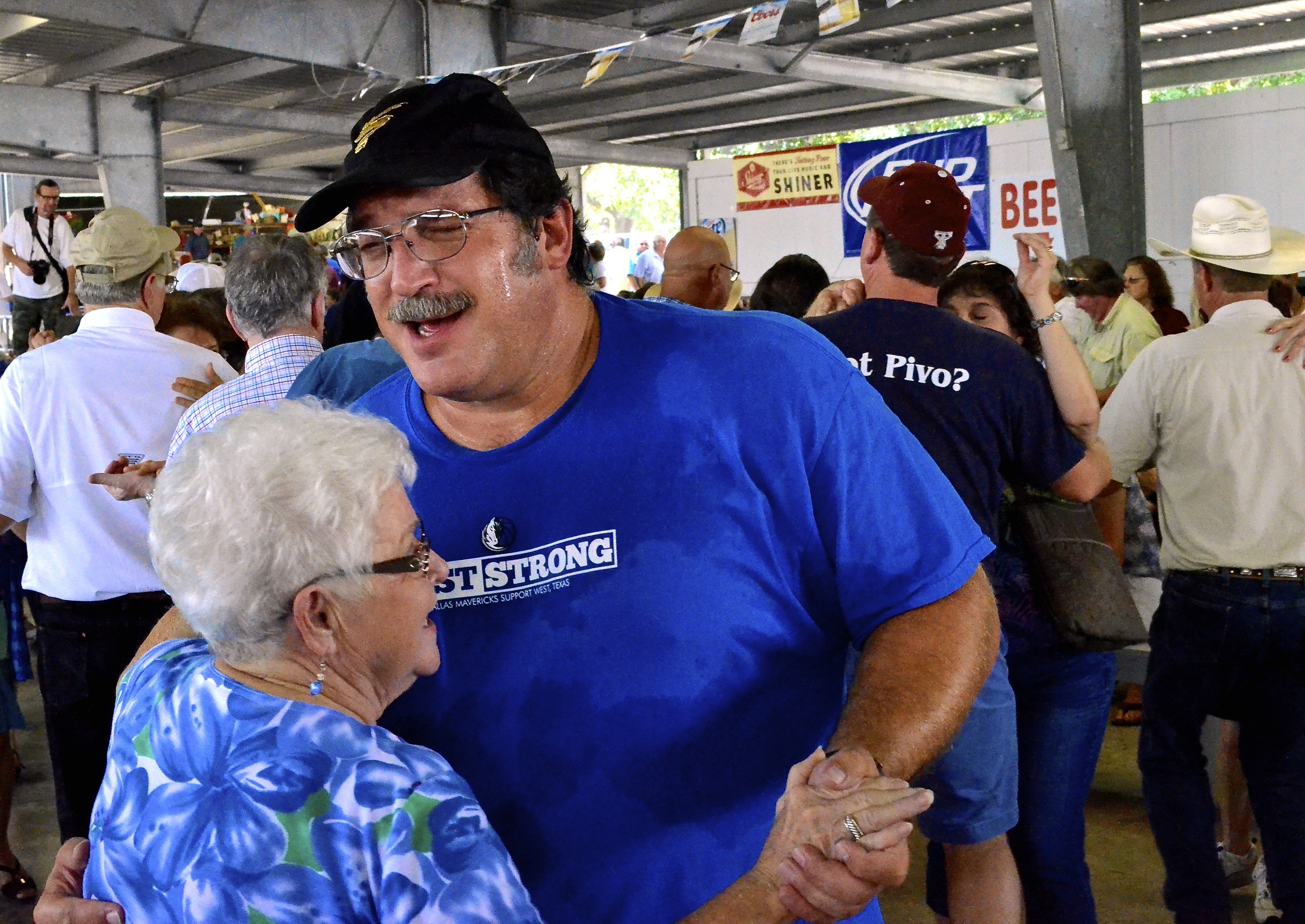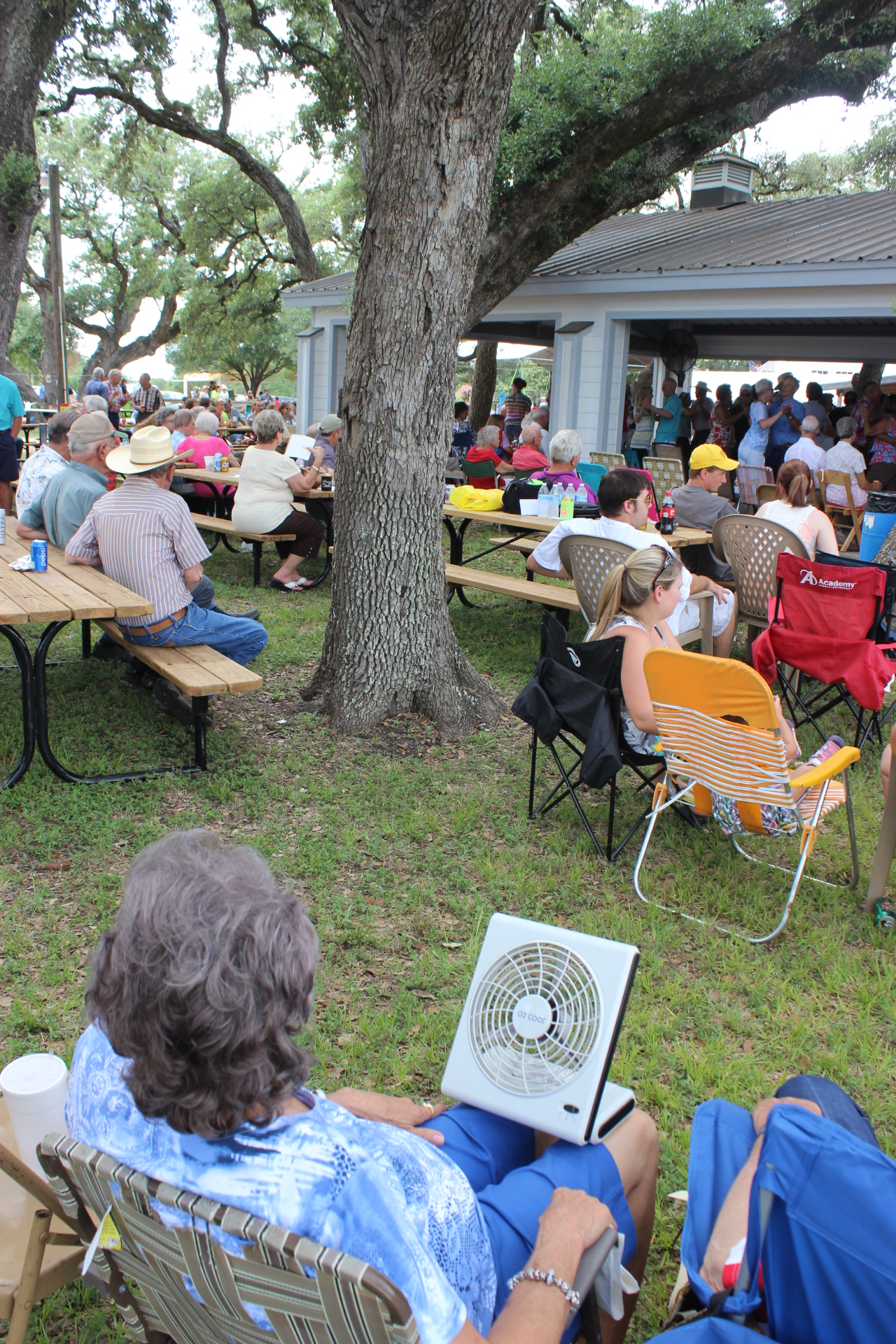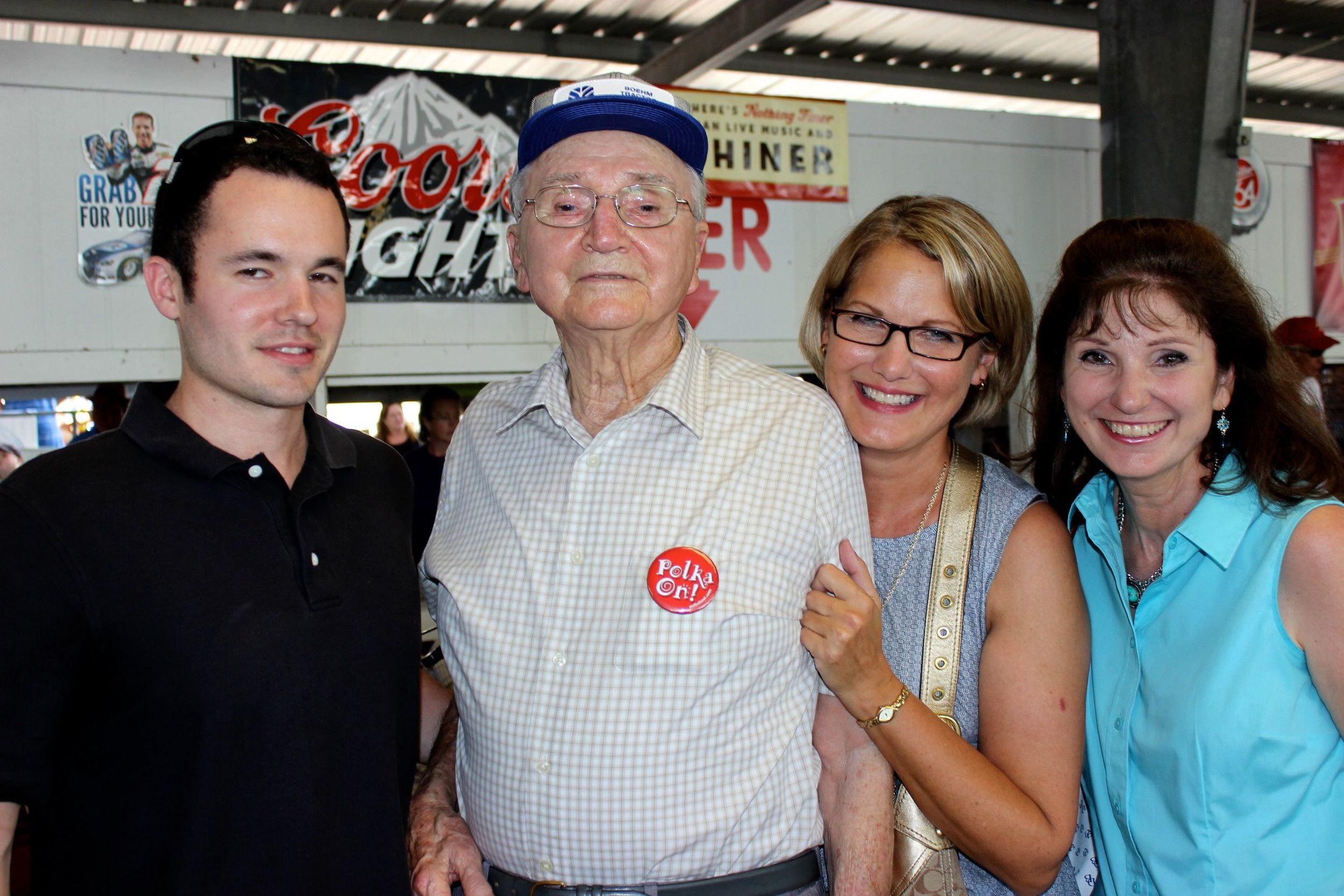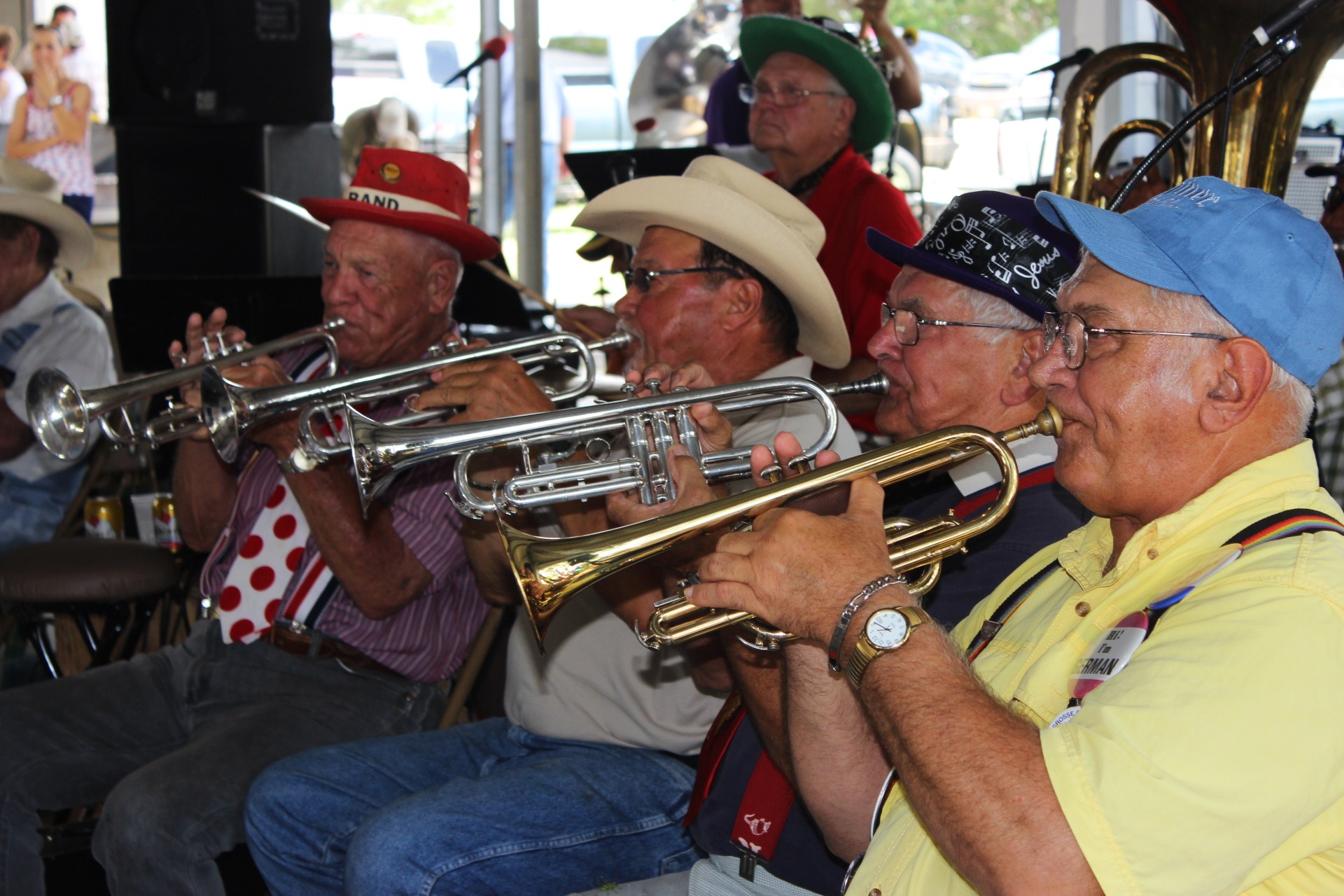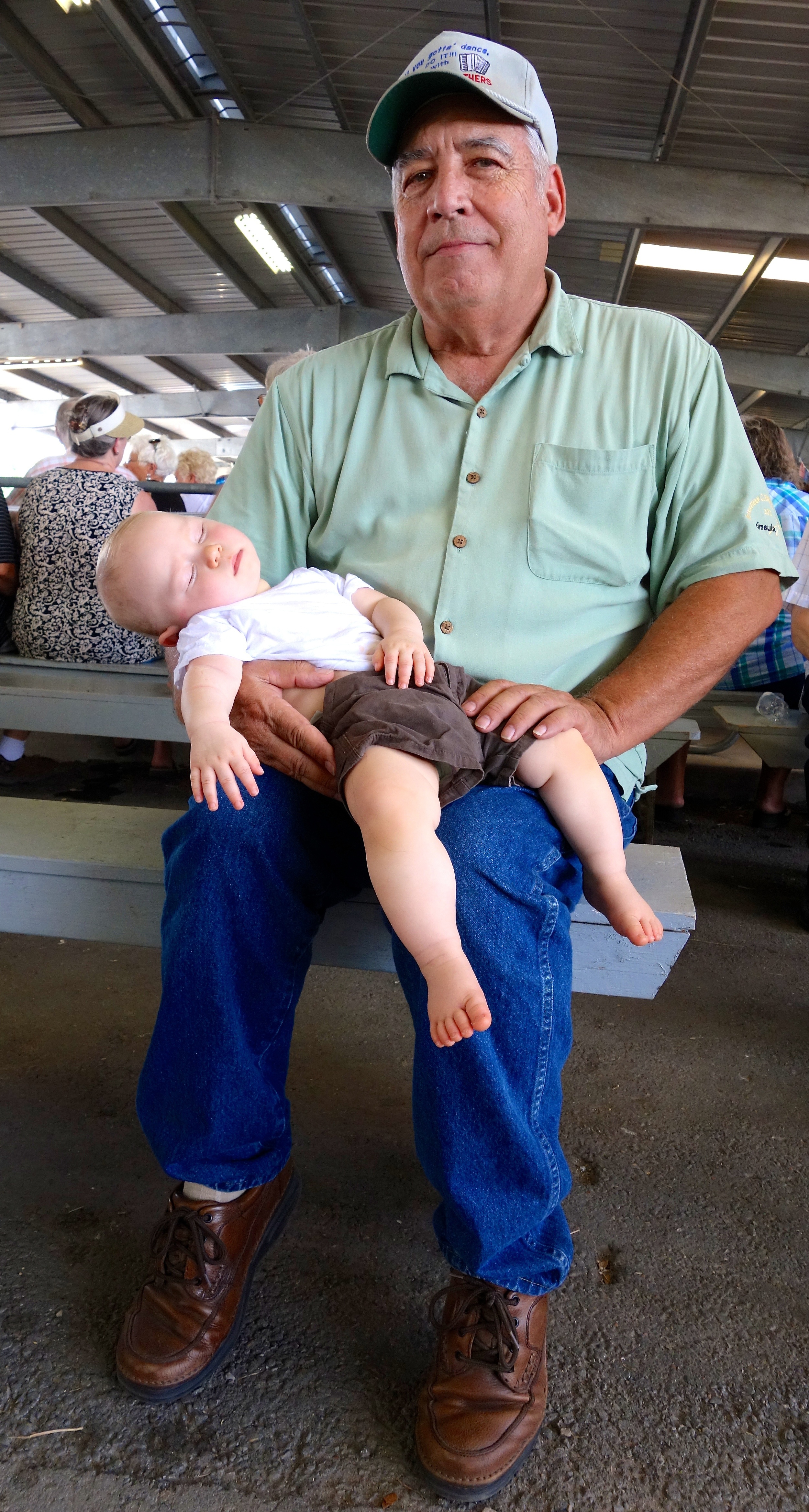By Gary E. McKee
Mikula (Mĕkoola) translates to Nicholas in Czech and is a very popular name around December 5th in the Czech Republic as Svatý Mikuláš (Saint Nick) visits the children with gifts to brighten their lives. The same can be said, any time of the year, when the Jodie Mikula Orchestra (JMO)
visits your dance hall with its unique brand of dance music as they have been doing for the past 50 years.
ACCORDION LESSONS
It all began around 1929 near Ennis, Texas when 11-year-old Josef Maetej (Michael) Mikula received a $12 accordion from his father, Josef. When there was time on the cotton farm, Great Uncle Frank Mikula would stop by to give Jodie accordion lessons. Jodie became confident enough to start sitting in with local bands while in his late teens.
With the advent of World War II, Jodie left the accordion and the farm behind to serve in the Army. Upon returning, he got a mechanic job in Ennis and subsequently met Rosie Horak at a polka dance at the KJT Hall. They were married in 1947. Uncle Frank’s accordion led the Grand
March at the wedding reception. The union produced three sons: Ken, Nick, and Andy. When they were in elementary and junior high school, Jodie ensured that they began a music education. To steer them the polka way, Jodie asked a friend, Raymond Zapletal, who was head of The Music Masters, to teach Ken and Nick the cornet. Andy, who was always drumming his fingers on
something opted to learn the drums.
As the boys were learning the horns, their father, astounded them and their mother by pulling out an accordion and started playing some old Czech songs. He had never mentioned to even his wife of almost 20 years that he had once played the accordion. With their father guiding them, the boys progressed toward their destiny.
FAMILY JAMS
On Sundays, Uncle Frank would bring his accordion over for a polka jam. Ken reminisced: “One Sunday, the idea came up about starting a band. We needed a bass player and we looked to our cousin Edwin Mikula, Uncle Frank’s son. Edwin rented a Sousaphone but soon decided it wasn’t anything he wanted to do. We looked to our mom, Rosie, who offered to play drums. Andy gave up the drum slot and started on bass.” Utilizing Johnny Mensik and The Vrazels as guidelines, the
band searched for their own sound.
By 1967, the family band was ready to go public. Jodie and Frank were on accordions, Ken and Nick on cornets and saxophones, and Andy on Sousaphone. (The Sousaphone is the big round
marching-band type of bass horn.) Ken and Nick provided the Czech and English vocals. The cornets produced a sound that is markedly different than that of a trumpet, a less brassy sound, which set the band apart. Soon, they were booked almost every weekend for a dance or church bazaar.
Their reputation grew as evidenced by the December 1973 advertisement run
by Elm Mott’s Linden Hall, just north of Waco: We got ’em again. You liked ’em so well in January now come and enjoy them again. Polka, Waltz, Popular, Country- Western. On their 10th anniversary, the SPJST Lodge 84 in Dallas advertised for polka fans to: Listen or Dance to Jodie’s music while he plays that accordion and still smiles at his three sons who are part of this family band. Dance schedules show that they were performing at least once a week for several decades, particularly in the Dallas/Fort Worth-Waco-Ennis area.
SIGNIFICANT CONTRIBUTION
The 25th anniversary of the band was celebrated at the SPJST Lodge 18 in Elgin in March 1992. The Lodge presented them with a nice plaque engraved: To the Mikula Orchestra, who have made a significant contribution to promoting polka and waltz music. In 1997, to mark the 30th anniversary of JMO, they performed at a polka Mass and then gave a dance at the West
Fraternal Auditorium where they had played the very first song, the Dance Hall Polka performed there at the hall’s grand opening 20 years earlier. Details for the 50th anniversary celebration to be held August 26 at the KJT Hall in Ennis are being worked out as you read this.
MUSICIANS PLAY
A few musicians have come and gone from the band, but the greatest loss was Jodie Mikula himself who passed away in 1989. The following year The Texas Polka Music Association (TMPA) bestowed a posthumous award to Jodie: A Pioneer Polka Band Leader with a Lifetime of Dedication to Polka Dance Music. A year after the band’s forming, Rosie decided that the already full schedule was not for her, so she bowed out and Andy went back to his first love, the drums. Dan Barto filled in for a couple of years on bass. Musicians who have helped build and ensure the success of the band were Charlie Patak, who “unretired” from music, signed on, and squeezed
the accordion for 25 years; John Graves on keyboards, and James Zalkovsky on electric bass and vocals. Keeping the band close to home and returning the music lesson favor, Raymond Zapletal’s wife, Pat, played keyboards for 25 years.
MAREKS JOIN JMO
Janice Matocha Marek came aboard the JMO in 2013. Janice began music by occasionally singing with her father’s band, the Lee Roy Matocha Orchestra in 1975, and moved into full-time keyboardist four years later for the legendary band. Several years later, Mike Marek began
dating Janice and Lee Roy told him if he was going to follow her around he should bring his tuba along. He followed his future father-in-law’s advice and Lee Roy gained a son-in-law and a tuba player.
Mike played with the Matochas until Lee Roy’s retirement in 1998. At that time the Mikulas needed a bass player. Mike signed on, and is still thumping away. After her father’s retirement, Janice kept her fingers nimble by playing keyboards at their church in Marek, Texas. When Pat
Z retired from JMO after 25 years, Janice, who had been occasionally sitting in for Pat, took the keyboard position.
Mike Marek began his musical career in the 8th grade without knowing how to play. The story goes that his father’s band, Der Rhein Steins was filming a promotional video for a Cameron festival and they needed someone to hold the tuba. Mike was drafted. After the shoot, his father suggested he learn how to play music so he started taking band in high school. For the next several years he played with various Cameron-area bands such as Bob Schlecte’s Central Texas
Polka Image and Leroy Schiller’s East Bell County Bohemian Brass and BBQ Society.
After Charlie Patak retired (again), Joe Zetka Jr. was tapped to handle the accordion side of the band. Joe was auditioned at a Corn Hill dance, but had just slammed his index finger in a car
door. He still passed the audition with only three operable fingers. Joe’s multi-instrumental
talent strengthens the band’s unique sound (he also is a great harmonica player). For the record, this year Joe will be the same age as the band, 50. His wife, Patti, says that he was born to play in the JMO. The versatility of these six members adds up to over 20 different instruments that they can play producing a wide repertoire with a full, rich sound.
WELL TRAVELED
Along the way, JMO has picked up numerous awards and accolades. In 1991 the TMPA named the JMO band of the year with Ken and Nick being designated the Best Vocal Duo and the JMO’s album, Hot Favorites making Album of the Year. Two years later, the TMPA chose The
Klobase Polka as song of the year. The song was penned by Ken and Charlie Patak, and is a humorous story of two farm boys who were given money by their mother to go buy some klobase in town. There, the boys discover a polka dance in progress and they proceed to whoop it up, spending all their money, and suffering the consequence when returning home empty
handed.
In June 1996, JMO performed at the First Annual Lawrence Welk Polka Festival in Branson, Missouri. There was a band competition judged by some of the original Lawrence Welk performers. The JMO tied for first place and performed with Myron Floren in the Lawrence Welk
Branson show that evening.
Over the years, the JMO has tested its sea legs on eight polka cruises to various Caribbean ports, including the most recent this past November with the Dujka Brothers and Alex Meixner, and
in January 2014 hosted by Jimmy Sturr and Mollie B. They have also tested their ability to be confined to close quarters by hosting bus trips to Nevada, St. Louis, and the Midwest. Apparently they have survived their journeys intact. Being so well traveled, they have also broadened
their ethnic horizons by playing at St. Patrick’s Day festivals, though I doubt that they played very many Irish jigs.
So remember to journey to Ennis in August to help the Jodie Mikula Orchestra kick off another 50 years.

